
- Tourism Development Levy
- Sri Lanka Tourist Attractions
- Tourism News

Sri Lanka Tourism Strategic Plane 2017 - 2020
Download Application
English Application
Sinhala application, tamil application, home stay units, bungalows, rented houses and rented apartments.
The Ministry of Economic Development has pioneered the “Divi Naguma” programme in order to empower the rural community with a sound economic base. To make a positive contribution to this concept, the tourism sector has conceptualized the “Home Stay Programme” for the purpose of directly involving the rural community in Tourism which is now becoming a major contributor to the Sri Lankan Economy.
The initiative was taken by Sri Lanka Tourism to launch the Home Stay programme with the objective of engaging local community together with their expertise and capacity to become stakeholders in the Tourism sector. They would become beneficiaries of tourism by offering accommodation facilities in their own homes to tourists. The Home Stay program will have a special feature where tourists will have a first-hand experience of local culture and life style which most of the tourists look for in their travel.
that the tourists will enjoy encompasses taking site visits, tasting local cuisines, taking part in traditions etc. In addition, this program will compliment the present investments flow to have more hotel rooms in the country to meet the increasing demand for accommodation at various tourist destinations in the island.
The program also provides training and other facilities to those who operators to offer clean, comfortable and affordable accommodation while ensuring a memorable experience to the guests who would become promoters of this program in their own countries. The following three (3) main sub-categories are recognized under this scheme

Home Stay Units

Rented Houses / Rented Apartments
Definition for the home stay concept
“It is a community based tourism programme which is initiated with the objective of distributing the tourism benefit to a fair cross section of the society by preparing houses/accommodation units carrying various themes, bringing out Sri Lankan authenticity, located in various destinations within Sri Lanka, with suitable quality standards befitting the purpose of accommodating tourists, intending an interaction between the local community with the tourists giving opportunity to the tourist to experience Sri Lankan way of life.“
The houses which can be defined under the above concept will only be eligible for registration under the Home Stay programme.
A house occupied by a family with one room up to four guest rooms which is/are ready to accommodate tourists where the tourist and the hosting family interact with each other.
If the house is more than 100 years old and with acceptable proof it will be categorized as 'Heritage Home'.
- To empower local community by creating tourism related employment and distributing economic benefits through tourism.
- To support the demand for supplementary accommodation in urban areas.
- Accreditation for the Home Stay, Bungalow and Rented Houses / Rented Apartment category.
- Broaden the stakeholders’ base in tourism.
- Expand tourism related activities to rural and interior areas.
- Sustainable and responsible development of Eco and rural tourism.
- Recognition as an authorized tourist establishment registered under National Tourism Organization in the country (Sri Lanka Tourism Development Authority).
- Professional advice for improvements of your house & guest services by experts in the respective fields.
- Free training on hospitality services, basic accounting, attitude building, marketing etc.
- Free publicity and marketing opportunities through official web sites of Sri Lanka Tourism.
- Listing in the accommodation guide and Home Stay directory published by Sri Lanka Tourism.
- The brochures and advertisements will be released free of charge periodically.
- Marketing opportunities via national and international information counters, travel fairs, tourist directories, guidebooks, and social media networks.
- Eligibility to display the Home Stay logo as a registered establishment.
- Eligibility to apply for financial assistance arranged by Sri Lanka Tourism if & when such program is announced.

Our Service

How to apply for registration
Those who interested are at liberty to submit applications for approval for setting up any of the three types of establishments mentioned above in the country side under the supervision of Sri Lanka Tourism. The application can be downloaded from www.sltda. gov.lk/home_stay_project or can be obtained from the office of Sri Lanka Tourism Development Authority.
- In Cash to the Cashier of Sri Lanka Tourism Development Authority. On working days from 9 am to 3 pm.
- By cheque written in favour of Sri Lanka Tourism Development Authority
- Can be deposited to A/c No. 79746281 Bank Of Ceylon (Account Name-Sri Lanka Tourism Development Authority-Corporate Branch) Please send the original Bank Deposit Slip with the application form
- The scheme shall be operative in entire Sri Lanka.
- It is compulsory that all Home Stay units, Bungalows & Rented Houses/ Rented Apartments under the scheme should register and licence with Sri Lanka Tourism.
- The proprietor of the house to be registered under the scheme should submit an application to Sri Lanka Tourism with all information and relevant documents.
- Standard and Quality Assurance Division of Sri Lanka Tourism, as specified in the guidelines, would ensure to conduct an inspection of the premises within thirty (30) days of submitting the application before registering the unit as Home Stay, Bungalow & Rented Houses/ Rented Apartments. This is to ensure that the architectural design is in conformity with location and the surrounding environment and the unit has hygienic, clean facilities and is secure for tourists. On application for registration/renewal, the unit will have to be ready for inspection, without prior notice, by officials of Sri Lanka Tourism. No request for deferment of inspection will be entertained.
- It is recommended to prepare and display in order to specify the type of meals to be offered with the charges and the visitors will have to be informed in advance so as to avoid unnecessary disputes.
- A registration fee of Rs.1000.00 + NBT + VAT should be paid when submitting the application for registration as Home Stay unit, Bungalow & Rented Houses/ Rented Apartments.
- A certificate of registration will be issued on evaluation of the standards as per the Mark sheet.
- Any deficiency /short comings notified by the committee during inspection will be informed on the spot, and to be rectified within a period of time agreed by the owner of the establishment (less than three 03) months)and informed to Sri Lanka Tourism for the re-inspection of the premises.
- The committee will decide and may recommend registration in a category either higher or lower than the one applied for. In case the category applied for is lower than the one recommended by the committee, then the applicant has the right to reapply for required category after fulfilling the standards.
- The Home Stay unit, Bungalow & Rented Houses/ Rented Apartment is expected to maintain required standard at all times.Sri Lanka Tourism will conduct a surprise inspection of the house at any time without previous notice.
- In case of failure to maintain required quality and service standard, hygiene condition, misbehaviour or malpractices,the registration will be cancelled by Director General of Sri Lanka Tourism, after giving reasonable time period to rectify same.
- Any complaint from any guest in accommodation of any of the three (3)types of establishments to the Sri Lanka Tourism, will be investigated and if found guilty the registration will be cancelled by Director General of Sri Lanka Tourism.
- Any change in facilities, refurbishment / upgrading or extensions should be informed in writing to Sri Lanka Tourism within 30 days. If the clause is in violation and is comes to the notice of the committee,the classification will stand withdrawn/terminated.
- The registered Home Stay units, Bungalows and Rented Houses/ Rented Apartments are permitted to market and to promote the unit and activities.
- Sri Lanka Tourism will organized training programmes on hospitality services which need to provide with good quality service and facilities for tourists.
The licence/classification will be valid for one (01) calendar year. A renewal application with relevant documents and fee should be submitted to Sri Lanka Tourism, three months prior to the expiry of the licence for re-inspection/re-evaluation (The application can be downloaded from www.sltda.gov.lk/home_stay_project or can be obtained from the office of Sri Lanka Tourism Development Authority.

Conditions for registration

Responsibility of the owner
- Every owner of Home Stay unit, Bungalow & Rented Houses/ Rented Apartments shall get registered with Sri Lanka Tourism and follow the guidelines thereafter as stated in the Home-Stay guidelines, which shall be binding on the owner of the Home Stay unit.
- The owner of the home stay unit shall at all times maintain the minimum standards of the cleanliness, sanitation, quality food etc. as stipulated by Sri Lanka Tourism.
- In case of unhygienic conditions, misbehaviour, malpractices, failure to maintain required standards etc. The registration of the home stay unit will be cancelled after giving a reasonable opportunity to the owner. The cancellation will be done by the Director General of the Sri Lanka Tourism.
- The owner shall maintain a register for letting out the rooms to the tourists, which can be inspected by the concerned. The register will have the same format as those presently being used in the Hotels/ Guest Houses.
- The owner shall display a registration certificate of the Home Stay Unit for the information of the tourist. The official logo of the Home Stay units which is issued by Sri Lanka Tourism can also be displayed.
- Eligibility
It is essential to have the requirements mentioned from 1-6 below to be eligible to register as a Home Stay Unit/ Tourist Bungalow/Rented Tourist Home/ Rented Tourist Apartment in Sri Lanka.
- The locality and environment should be suitable for the tourism purpose as per the definition of. The Home Stay Programme(01)
- Access/Approach should be suitable for the tourism purpose. If it is a property that goes with themes such as village/ adventure/wildlife etc. necessary security accessibility arrangements should be made for the safety of the tourist.
- The layout and the condition of the house/ accommodation unit should be suitable for the operation of a Home-Stay Unit/ Tourist Bungalow/Rented Tourist Home/ Rented Tourist Apartment.
- The compound/garden should be well laid out and maintained in a manner befitting a Home-Stay Unit/Tourist Bungalow/Rented Tourist home/ Rented Tourist Apartment.
- Maintenance of all areas of the house/ accommodation unit including the compound/garden furniture, equipment, fixtures, fittings, etc. should be of a standard befitting the tourism purpose.
- A proper parking arrangement (with adequate security) should be available.
- Front Sitting Area/Hall
- Should be pleasantly arranged to accommodate guests
- Should have clean, spacious, well maintained front sitting area/hall.
- The sitting area/hall should have adequate ventilation and natural or artificial lighting.
- The sitting area/hall should have adequate, good quality furniture/seating arrangement in very good condition befitting respective theme.
- Bed rooms/ Sleeping area
Should have bed room/a proper sleeping arrangement with separate guest bathrooms.
- Bed room/sleeping area should be spacious, clean, well ventilated and well maintained.
Minimum size of the single bed room/sleeping area for one person should not be less than 100 sq.ft. and the minimum size of the double bed room/sleeping area for two people should not be less than 120 sq.ft.
The safety and privacy of the tourist should be assured especially within the bedroom/ sleeping area
- Bed room/sleeping area should have windows suitably curtained or fitted with blind or equivalent preserving security/ privacy of the tourist
Electric fans/coolers/air-conditioners/ heaters and/or blankets should be available depending on the climate. This guideline will not be mandatory only in special situations such as eco-lodges etc.
- Bed room should preferably have call bell system for the convenience of tourist.(in the case of Home Stays, it is optional)
A dressing table with mirror/or a wall fitted mirror with a shelf, wardrobe or wall cupboard and/or cloth hangers, a small lockable cupboard to store valuables, a towel rack, a luggage rack or equivalent, a bedside stool/ equivalent and a waste-paper basket must be available inside the room.
Clean and comfortable bedding/sleeping arrangement should be provided in keeping with the respective theme
- Size of the bed should not be less than (78 inches /6.3ft X 3 ft) and size of the double bed should not be less than 78 inches/6.3 ft X 5 ft) (this is not mandatory in special situations such as eco-lodges/ tree houses etc.)
Bed linen should be changed at least once in 03 days for staying guest. Fresh linen should be provided with each new guest
All bedrooms should have separate guest bathrooms with W.C over head showers and the main floor area should not be less than 30sq.ft, with moderate sanitation in very good working order.
- Bath room floor should be clean and hygienic.
- Bath room walls should be preferably tiled up to 5 ft or finished with smooth cement/tiled or washable rubber paint or equivalent in keeping with the respective theme.
Bath room should have wash basin, mirror, towel rail, cloth hooks etc.. or equivalent facilities in keeping with the respective theme
- Should have adequate good quality, absorbent towels and have to be changed on regular basis
- Iron board and iron should be available on request.
- Homes with electricity supply should supply a plug point inside in each guest room
- Dining Area
Should have a clean, well maintained dining area with good quality comfortable serving and seating arrangement.
- Should have adequate stock of good quality cutlery, crockery, tableware and table linen or equivalent authentic material serving the same purpose will be considered.
Should have a spacious,clean, well ventilated kitchen. A traditional Sri Lankan kitchen with proper maintenance and cleanliness will be accepted.
Kitchen floor should be clean & hygienic.
- Kitchen area should be free of insects and rodents. Adequate measures should be taken to prevent insects inside the kitchen.
- Cupboards for storage of groceries and perishables should available.
- Should have cold storage facilities. Fish, meat, dairy products, cooked and uncooked foods should be stored separately to avoid cross contamination.
Adequate precautions should be taken in a case of fire.
There should be a sink with running water to wash curtly, crockery and glassware hygienically.
Should maintain a guest register with name, address, contact details, passport number/ national identity card number, date of arrival/departure etc. with guest signature for references.
All transactions should be issued with valid receipts and record to be maintained accordingly.
- Clean, hygienic and uninterrupted water supply should be assured for tourists.
- If food is served, there should be a list of food items / type of meals available and the charges. If not self-cooking facility should be available all required cooking utensils.
First aid facilities should be available.
- Path ways, stairs, elevators should be well lit for safely.
Suitable arrangement should be made for the provision of laundry service of guest linen.
All drainage in and around the kitchen should be cleaned, covered and disposed systematically.
Garbage should be stored in covered bins until they are disposed.
- Facilities should preferably be arranged to hire vehicle for excursions, transfer of guest, etc.
In case of sickness, there should be an arrangement to contact qualified medical officer.
- Should preferably be disable-friendly.
Guide Lines for registration

- What is Home Stay?
Home stay is a scheme which encourages local residents to open their home to paying guests at least on a bed & breakfast basis, enabling tourists to live in a homely environment and to experience the local customs and traditions.
- What are the criteria for Home Stay/ Bungalow/Rented Houses & Rented Apartments ?
home-stay.At the time of inspection
- Property needs to be clean, tidy and presentable. Cleanliness is of paramount importance to your guests, so a high standard of cleanliness must be achieved and maintained throughout your property, giving particular attention to kitchens, bath rooms and toilets
- Other items involving direct contact with guests should be clean and in good repair(such as bedding, linen, mattresses, towels, flooring, seating, crockery, cutlery, glassware, kitchen, utensils and equipment)
- What happens if I do not meet the criteria upon the initial inspection ?
You can re-apply for the inspection It is advisable, to apply for the re inspection after completing the short comings, which was notified during the first inspection.
- Can I register a tent in the garden under the Home stay/Bungalow/ Rented Home/ Apartment scheme ?
Guest must be accommodated in a room with all the facilities detailed in the registration guideline of Home Stays. You are free to go for new themes, but the security of the guest should be secured and all the facilities specified in the Guideline should be available.
- Can I rent my whole house out to guests that do not know each other ?
No. If you are moving out of your property then you must rent the entire property to the same party at any one period. You cannot accept multiple guests who do not know each other.
- What do I need to do for Bed & Breakfast Home stay/ Bungalow ?
A cooked breakfast or continental breakfast should be provided. It is recommended that you use local produce for your visitors.
- I work full time. Can I provide all the necessary food for breakfast so the guests can cook it themselves ?
Yes. That is absolutely fine. Just advise the guest at the time of booking that you will be providing a self-service breakfast.
- What is the cost of registration and what does it cover ?
The cost of registration is Rs. 1,000.00 +NBT+ VAT. No licence fee or an administration will be charged in addition to this. The Renewal fee of the licence for the 2nd, 3rd & 4th consecutive years will be Rs. 2,500.00+NBT+VAT. The renewal fee of licence of the 5th year will be Rs.5,000/- + NBT+ VAT and for 7th year 7,500/- +NBT + VAT. The 8th year onwards the renewal fee will be Rs. 10,000.00+NBT+VAT.
- How do I fix my rates?
The rates depend on the facilities & services that are available in the establishment and it is advised to fix your own competitive rates. The officials of the Standards & Quality Assurance Division of SLTDA will advise after the inspection, at your request.
- What if my property is open plan or quirky layout ?
If you have any concerns regarding the layout of your property, you should discuss this with the officials of Standard & Quality Assurance division at Sri Lanka Tourism prior to an inspection.
- Do I receive any financial assistance for improvements ?
As a registered Home Stay owner, you are eligible to apply for financial assistance arranged by Sri Lanka Tourism. These types of schemes will be published in national news papers when available.
Yes. The Sri Lanka Tourism will issue you with a registration certificate confirming that your property is suitable for home stay unit accommodation. You are advised to display the certificate in the reception area for guest information. In addition, you can display the logo of Home-Stay scheme.
- What if you receive a complaint from a guest regarding my accommodation ?
When Sri Lanka Tourism receive a complaint from any guest in Home Stay/Bungalow/ Rented Home/Apartment accommodation, the complaint will be investigated and if found valid we reserves the right to cancel the registration and will insist that any future bookings are returned. Sri Lanka Tourism is dedicated to providing a quality service to all guests. As part of this commitment to quality, it is important you understand that as a provider of any of the above accommodation, you are an ambassador for the Sri Lanka Tourism. We would encourage you to take this role seriously and we like to offer and encourage all Home stay/Bungalow hosts the opportunity to take part in the training programs
- What happens if I am unhappy with the conduct of my guests ?
The officials of Sri Lanka tourism are available to help and assist you. Nobody should be made to feel uncomfortable in their own home or that their property is not being treated with respect. However, we rarely receive a complaint of this nature as the majority of guests are grateful for somewhere to stay. If you are unhappy regarding the conduct of your guests it is imperative that you contact the officials of Standards & Quality Assurance division of Sri Lanka Tourism for advice whilst your guest is on the Island and we will do our best to help you.
- How do I ensure that Home stay is a positive experience for me and my guests ?
Sri Lanka tourism recommends that you treat your guests as you would like to be treated. Communication is of paramount importance. If you are registering for the first time, or accepting new guests that you have never met before, we would suggest you find out as much as you can about them prior to their arrival. This will make you both more comfortable. It will also protect you and your property. Always ensure you take all names, addresses and contact details of your guests, make arrangements for access to the property when they arrive, and find out if they have any allergies, food habits mobility problems or special requirements you need to know about.
- What are the booking procedures ?
Once you have registered with Sri Lanka Tourism, all registered Home Stay providers (common to all three types under the scheme) are added to our Accommodation guide and will be listed in our official website. Guests seeking accommodation will contact you directly to make a booking. It is your responsibility to take guests contact details, confirm arrival and departure dates and agree your terms. In addition, we will guide you on available marketing options during the Training programmes.
- How much deposit should I take and when should I collect the balance ?
It is suggested that you request deposit to secure the booking of not more than 20% of the total cost. You must not request payment in full prior to arrival. Once you have received the deposit, you should acknowledge this to the guest either by letter or email. Guests should be requested the final balance in cash on the day before the departure. If it is necessary guests should be allowed the opportunity to inspect the property first, to ensure they are happy before making any payment.
- What if the guest does not pay ?
Sri Lanka Tourism is only a facilitator to the Home Stay/Bungalow scheme and we can not be held responsible for non payment of guests. Any necessary Action would be the responsibility of the Home stay provider. This action would be through the courts as a civil action and instigated by the Home stay provider. It is therefore always advisable that you collect full names and addresses and contact details of all guests. Please note that, non-payment is an extremely rare occurrence provided you follow the guidelines above on securing payment.
To find out businesses which are registered under the home stay project, please
- The Best Homestays In Sri...
The Best Homestays in Sri Lanka

Sri Lanka Hub Writer
Of all the types of accommodation available to travellers, homestays are not usually the most common. They are like a well-kept secret in every part of the world. They are the perfect union between a hotel and a family home – the best way to actually get to know the people of the place. Let the family feed you what they eat, have conversations with them, play with their pets, teach some words in your language to their kids. Here is a list of the best homestays in Sri Lanka – now bookable on Culture Trip.
1. waterfalls homestay.
Homestay, Guesthouse

2. Redhill Kandy
Boutique Hotel, Hotel

3. Siesta Guest House
Bed and Breakfast, Guesthouse

5. Palitha Homestay
Homestay, Hotel

Since you are here, we would like to share our vision for the future of travel - and the direction Culture Trip is moving in.
Culture Trip launched in 2011 with a simple yet passionate mission: to inspire people to go beyond their boundaries and experience what makes a place, its people and its culture special and meaningful — and this is still in our DNA today. We are proud that, for more than a decade, millions like you have trusted our award-winning recommendations by people who deeply understand what makes certain places and communities so special.
Increasingly we believe the world needs more meaningful, real-life connections between curious travellers keen to explore the world in a more responsible way. That is why we have intensively curated a collection of premium small-group trips as an invitation to meet and connect with new, like-minded people for once-in-a-lifetime experiences in three categories: Culture Trips, Rail Trips and Private Trips. Our Trips are suitable for both solo travelers, couples and friends who want to explore the world together.
Culture Trips are deeply immersive 5 to 16 days itineraries, that combine authentic local experiences, exciting activities and 4-5* accommodation to look forward to at the end of each day. Our Rail Trips are our most planet-friendly itineraries that invite you to take the scenic route, relax whilst getting under the skin of a destination. Our Private Trips are fully tailored itineraries, curated by our Travel Experts specifically for you, your friends or your family.
We know that many of you worry about the environmental impact of travel and are looking for ways of expanding horizons in ways that do minimal harm - and may even bring benefits. We are committed to go as far as possible in curating our trips with care for the planet. That is why all of our trips are flightless in destination, fully carbon offset - and we have ambitious plans to be net zero in the very near future.

Places to Stay
The best hotels in unawatuna, sri lanka, for every traveller.

The Best Hotels in Hikkaduwa, Sri Lanka, for Every Traveller

Guides & Tips
The coolest fortresses you can visit with culture trip.

The Best Hotels in Yala National Park, Sri Lanka, for Wildlife Lovers

The Best Hotels to Book Near Mirissa, Sri Lanka

The Best Resorts in Sri Lanka

See & Do
The best places to see wildlife in sri lanka.

The Best Hotels in Dambulla, Sri Lanka, for Every Traveller

The Best Bed and Breakfasts to Book in Sri Lanka

The Best Luxury Hotels to Book in Sri Lanka

The Solo Traveller’s Guide to Sri Lanka

The Best Hotels in Weligama, Sri Lanka, for Every Traveller
Culture trip spring sale, save up to $1,100 on our unique small-group trips limited spots..

- Post ID: 1564002
- Sponsored? No
- View Payload
- FHSS Publications
- E – Repository
Homestay Tourism in Sri Lanka
Tourism is a fast-growing industry in Sri Lanka and it is the third largest export earner in the Sri Lankan economy. There are many forms of Tourism in the world. Homestay Tourism is a new concept of Tourism and now it is very popular among whole the world. A homestay is a form of hospitality and lodging where visitors share a residence with a local host community to which they are traveling.
In Sri Lanka, we can see various types of tourist accommodation options. Hotels, Motels, Apartments, Boutiques, Homestays, Inns, Villas, Guest Houses, Rooms, Cottages, Bungalows, Chalets, Holiday Cottages, resorts, and lagoons. As one of the major accommodation facilities available in Sri Lanka, Homestay Tourism can be identified and it is a form of accommodation where tourists stay with local families in their homes.
We define homestays as alternative accommodations in the form of an opportunity available for tourists visiting rural areas to stay with host families to experience the local culture, cuisine, and activities undertaken by host communities. Sri Lanka is an ideal hub for homestay tourism. Tourists can enjoy encompasses taking site visits, tasting local cuisines, and taking part in local traditions. On the other hand, most tourists love to experience local things such as customs, traditions, and lifestyles.
The concept of homestay tourism was introduced to Sri Lanka in 2009 to fulfill the growing demand for tourist accommodation. In 2011, Sri Lanka Tourism Development Authority (SLTDA) initiated a “Homestay” program to create more homestay entrepreneurs. In 2016 homestays in Sri Lanka have been established in every part of the country.
This is a community-based tourism concept. It is initially distributing the tourism benefit to a cross-section of society by preparing houses and, accommodation units carrying various themes, bringing out Sri Lankan authenticity, located in various destinations within Sri Lanka, with suitable quality standards benefitting the purpose of accommodating tourists, intending an interaction between the local community with giving opportunities to the tourist to experience Sri Lankan way of life.
According to SLTDA, homestay is a scheme that encourages residents to open their homes to paying guests at least on a bed and breakfast basis, enabling tourists to live in a homely environment and to experience the local customs and traditions.
Sri Lanka is home to many homestay destinations such as Yala, Jaffna, Kaluthara, Kandy, Negombo, Nuwara Eliya, Colombo, Ella, Galle, Hikkaduwa, Anuradhapura, Habarana, Meemure, and Trincomalee. Rural homestays are spread in the destinations like Meemure, Heel Oya, Atanwala, Mediripitiya, Yapahugama, Boburu Ella, Seelogama, and Viharahera. Most of the homestays are spread in rural areas in Sri Lanka.
When looking at the global trends of homestay tourism, especially homestays have widely spread in Asian and European regions. The demand for homestay tourism has increased now. Today, homestays are providing better accommodation than hotels at an affordable price with the added benefits of exploring local sights, food, and culture.
Looking at the current situation in Sri Lanka, it seems that the demand for homestays in 2020 has decreased compared to the previous years. The biggest reason for that was the situation during the Easter attack and the critical situation during the spread of the Covid-19 pandemic. Nowadays homestays are providing huge and better service to tourists. Staying in a such homestay is cheaper than staying in a luxury hotel. But the amount of experience available is plentiful. Therefore, it is a trend for many tourists to be attracted to homestays.
Geographical location, Unique natural environment, rich biodiversity, cultural heritage, historical places, and coastal areas are unique potentials for promoting homestay tourism in Sri Lanka. But unfortunately, despite having so many resources, it has not been possible to expand homestay tourism on a large scale. The economic crisis is negatively affected by that. Homestay tourism is not operating successfully due to certain difficulties and challenges like less government support in providing support to destination development, less standard procedure to start and continue homestay tourism, non-availability of equitable service to entrepreneurs has been crucial, financial challenges such as lack of loan facilities to homestay entrepreneurs and lack of fixed rate for rooms, low standard facilities, and low-quality service, lack of knowledge about homestay tourism concept, poor financial management, language barriers, lack of youth participation, etc. However, by successfully addressing those challenges, Sri Lanka will be able to promote homestay tourism with a new dimension for better tourist experiences.
K.M.G.R. Madhuwanthi Buddhist Heritage and Tourism Department of Pali & Buddhist Studies
Agyeiwaah, E.(2013),” Volunteer tourists’ motivations for choosing homestay in the Kumasi metropolis of Ghana”, African Journal of Hospitality, Tourism and Leisure, Vol.2 No.3,pp. 1-11.
Agyeiwaah, E, Akyeampong, O. and Amenumey, E.K. (2014), ” International tourists’ motivations to choose homestay: do their socio- demographics have any influence?”, Tourism and Hospitality Research, Vol.13 No.1, pp. 16-26.
Albacete-Saez, C.A., Fuentes- Fuentes, M.M and Llore’ns- Montes, F.J. (2007), “Service quality measurement in rural accommodation”, Annals of Tourism Research, Vol.234 No.1, pp.45-65.
Amin, A and Ibrahim, Y. (2016),” Sustainable community participation in homestay program”, Anand, A, Chandan, P. and Singh, R.B. (2012),” Homestays at Korzok: supplementing rural livelihoods.
Baty, R.M. and Dold, E. (1977), ” Cross- cultural homestay: an analysis of college students’ responses after living in an unfamiliar culture”, International Journal of Intercultural Relations, Vol.1 No 1, pp.61-76.
Bandaeathilake, HM (2003) Community participation in the management of the Kanneliya, Dediyagala, Nakiyadeniya proposed biosphere reserve, Science foundation Sri Lanka, 31 (1&2) pp 139-146.
Recent Blogs
Recent news, upcoming events.
- There are no upcoming events.
You will be redirected to your dashboard shortly. We will also call you back in 24 hrs .
- 10 Best Homestays In Colombo That Suits The Needs Of All Types Of Travelers
23 Mar 2023
The city of Colombo is a mesmerizing place to visit as it has culture, history and amazing architecture to embrace. What sets it apart from other places is the hospitality shown by all who hail from this island nation. This is particularly evident when you spend your vacations at the comfortable homestays in Colombo.
10 Best Homestays In Colombo
Opting for these cheap homestays in Colombo really proves why homestays are the best places to stay in Sri Lanka. Here are 5 homestays in Sri Lanka which you should not miss while visiting this wonderful country.
1. Mount Lavinia Homestay
Image Source
While visiting Sri Lanka , you must make a trip to the Mount Lavinia Beach for a quick getaway. One of the popular homestays in Colombo is the Mount Lavinia Homestay, which is only a 3 minute walk from the beach which is a white walled, simple place to spend the weekend with your loved ones. There are a number of cheap homestays in Colombo and Mount Lavinia Homestay ia one of the best places to enjoy your beach vacation this year.
Perfect For: Beach Goers Tariff Starting From: INR 2144 per night
Suggested Read: 7 Cottages In Colombo For A Refreshing Holiday Experience
Sri Lanka Holiday Packages On TravelTriangle
Book your Sri Lanka trip from TravelTriangle: Inclusive of Hotels, Sightseeing, Transfers, & Meals. Best Prices Guaranteed. Get Customizable Package & Free Guidance From Destination Experts. Book Now!

Sri Lanka Tour Package 4D/3N Hills & Beaches @ Rs 16,500
Plan your trip today!

Sri Lanka Family Holiday 5D/4N Package @ Rs 22,999
Get quotes from multiple travel experts.

Scenic Sri Lanka Honeymoon 6D/5N Package @ Rs 25,670
Compare & customize quotes before booking.
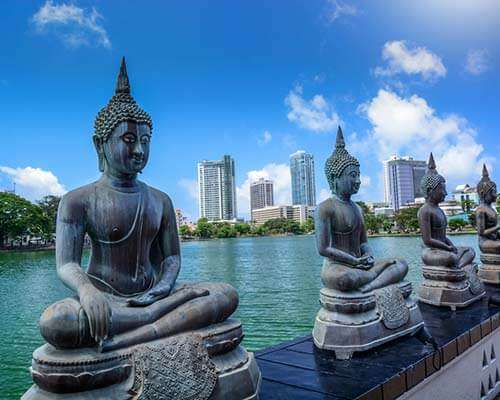
Best Selling Sri Lanka Family 6D/5N Package @ Rs 30,934
Have Questions? Talk to our travel experts today.
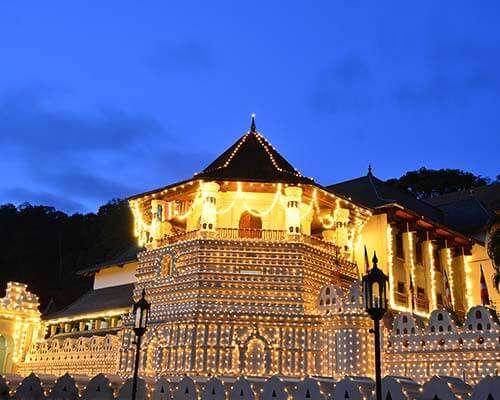
Adventurous Sri Lanka Tour 7D/6N Package @ Rs 34,500
Best prices guaranteed. EMI option available.
See more at TRAVELTRIANGLE.COM
9. Thissa Homestay
Located in the suburbs of Nugegoda, Thissa Homestay offers all amenities which will make your stay pleasant in Sri Lanka. There are plenty of furnished homestays in Colombo where the hosts cater to all your needs. From room quality to general service, the Thissa Homestay provides you with a comfortable stay during your vacation.
Perfect For: Group Travelers Tariff Starting From: INR 2478 per night
2. Colombo Garden Suite
In the heart of Colombo is an architect designed house which is set within a gorgeous lawn around the house. A true paradise in the midst of an upmarket residence, this is one of the best homestays in Colombo for relaxing over the weekend. Wake up to birds chirping serenaded with a quiet and calm ambience here at this perfect homestay in Colombo city.
Perfect For: Quiet Vacationers Tariff Starting From: INR 1889 per night
Suggested Read: 9 Temples In Colombo To Experience Peace & Divinity
3. Sujathas Homestay
As the homestay tourism in Sri Lanka is increasingly gaining momentum, there are plenty of places to choose from depending on the holiday you are planning. Sujathas Homestay in Sri Lanka is the essence of hospitality, located in a small suburb in Kandy. This is an ideal place to relax and let go of your everyday stress. Whether it is your daily meal or a guide to the best spots in Kandy, Sujatha and her husband will take care of all your needs. This cozy set up is truly one of the friendliest homestays in Colombo.
Perfect For: Avid Travelers Tariff Starting From: INR 2300 per night
4. Komalakotam Court
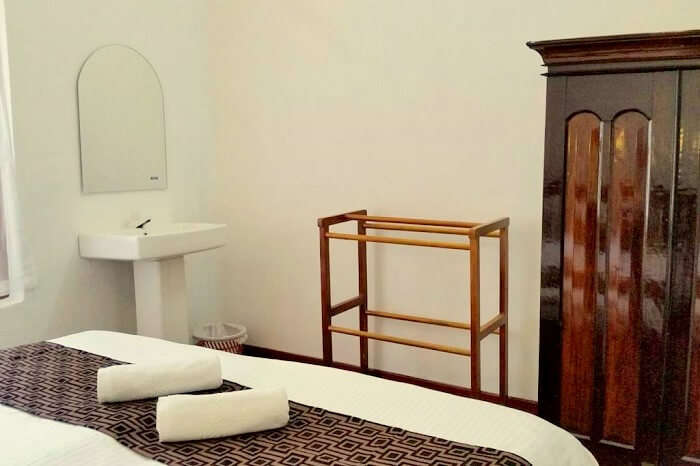
An ideal place to enjoy a few days away from your regular life, this homestay in Colombo is a blend of modern comfort and classic lifestyle. It is located in a quiet area yet lively during the day as there are a lot of activities taking place. You can sit back and relax with family and friends for an enjoyable weekend as the owners are extremely friendly to all guests.
Perfect For: All Travelers Tariff Starting From: INR 2045 per night
Suggested Read: 8 Best Homestays In Sri Lanka To Relax, Revive, And Rejuvenate At One’s Own Pace
5. The City Hideout Budget Homestay
In the thralling city of Colombo lies this budget homestay with 4 star treatment. The caretaker is available at all times to run any errands for you as well as the house owner who will guide you through the tourist spots and arrange all means of commute too. A well arranged place to stay for your trip to Sri Lanka, this is one of the well organized cheap homestays in Colombo.
Perfect For: Large family vacations Tariff Starting From: INR 1616 per night
6. Redhill Kandy

This hilltop homestay in Sri Lanka, Kandy is a gorgeous place to spend a weekend overlooking the Hunnasgiriya Mountain Range. One of the most famous tourist attractions, the Temple of the Sacred Tooth Relic is just a small drive away. High up on the hills, this homestay in Kandy offers a wide variety of breakfast options, a beautiful garden to relax and a proper guide to go on bicycle tours and hiking excursions around Kandy.
Perfect For: Family Vacations Tariff Starting From: INR 3500 per night
7. 24 Homestay, Colombo
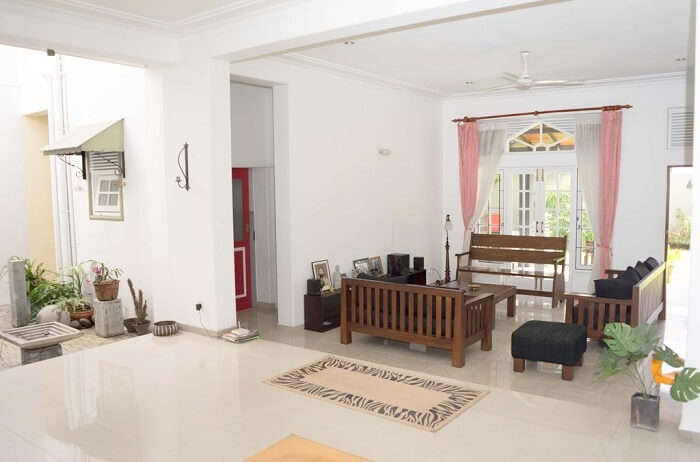
This holiday home is located in a residential colony and has strict policies about stag entries. This three bedroom house is very neatly decorated and maintained by the owner, it accommodates a common living space with a kitchen, fridge and basic utensils. A spacious home with a garden to relax in the evenings, this is a must visit homestay in Colombo for all travelers.
Perfect For: Family Vacations Tariff Starting From: INR 5137 per night
Suggested Read: 45 Best Places To Visit In Colombo That Will Spice Up Your Sri Lankan Sojourn!
8. Garden Guest House
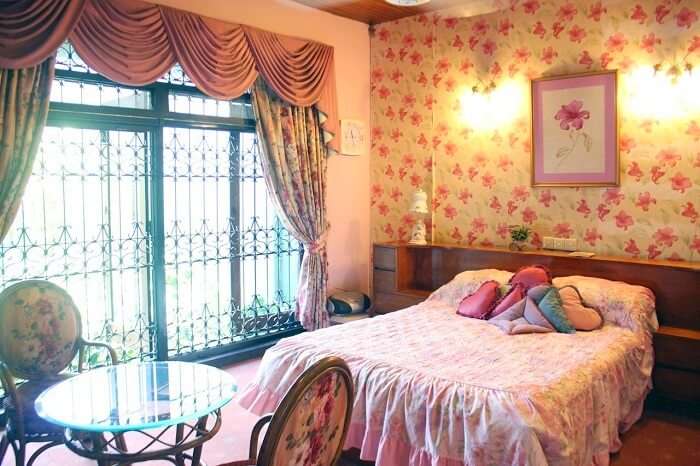
This homestay in Colombo is the definition of cosy living as it decorated with the homely touch. The ownes are extremely helpful and will provide you with anything you need during your stay. Not only is the ambience that of a garden, you can spend the quiet evenings in the beautiful garden. This homestay in Colombo is an absolute treat if you are looking for some peace and calm to relax. It is extremely close to the Pettah market and the Gangaramaya Buddhist Temple.
Perfect For: Weekend Travelers Tariff Starting From: INR 4312 per night
Suggested Read: Bachelor Parties In Sri Lanka: Sail Through The Last Days Of Your Singlehood In Style!
10. Leos Homestay
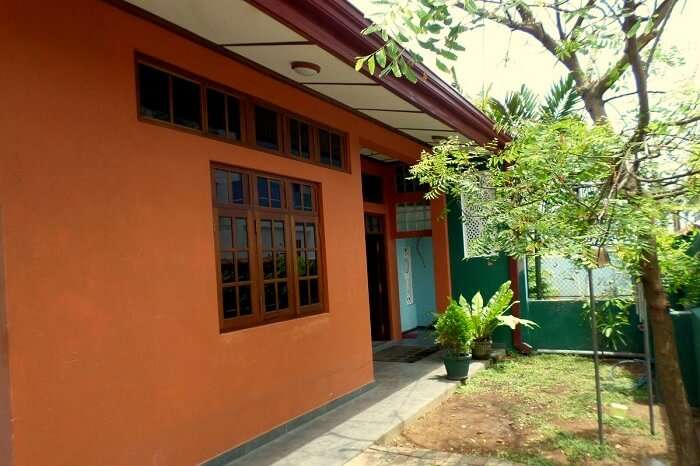
With close proximity to the beach, Leos Homestay is a second home for long weekend vacationers. A place to relax on your holiday, Leos is one of the most fun homestays in Colombo with 3 spacious and tastefully decorate rooms, a furnished living room and excellent service provided by the hosts. Leos is an Airbnb Homestay which is located 2 km from the Dehiwala Railway Station, giving you easy access to travel around Sri Lanka.
Perfect For: Solo Travelers Tariff Starting From: INR 3366 per night
Whether you are looking forward to rooms for rent in Colombo or are in search for the best homestays in Sri Lanka, there is a variety of choices you can make. While these are few of the best and most cheap homestays in Colombo, one can find many more across Kandy, Galle, and more on their trip to Sri Lanka .
Suggested Read: 19 Exotic Wedding Venues In Sri Lanka That Let You Take The Vows With Love, And Amidst Luxury
Looking To Book An International Holiday?
Book memorable holidays on TravelTriangle with 650+ verified travel agents for 65+ domestic and international destinations.

Trip to Sri Lanka at Rs 13,500/-
Plan Your Vacation Today!

Trip to Singapore at Rs 20,499/-
Get Quotes From Local Experts

Mauritius Holiday Starting at Rs 65,000/-
Talk to Our Experts Today

Maldives Honeymoon Trip at Rs 39,800/-
Pay with easy EMI Option

Europe Trip at Rs 89,999/-
All Inclusive Deals

Vacation in Dubai at Rs 27,499/-

Hong Kong Holiday at Rs 24,999/-
Money Safe Guarantee

Thailand Holiday at Rs 7,999/-
Flights Excluded
Recent Posts
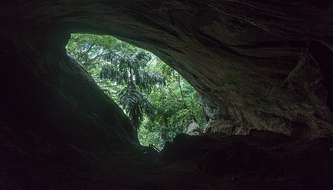
Ravana’s Cave In Sri Lanka: A Place Of Historical And Mythological Significance
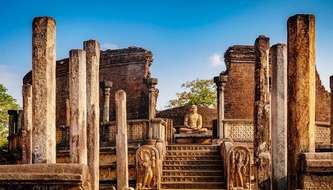
Marvellous UNESCO World Heritage Sites In Sri Lanka
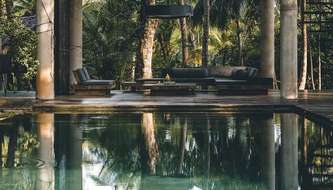
5 Fabulous Hotels in Unawatuna to Plan Your Stay
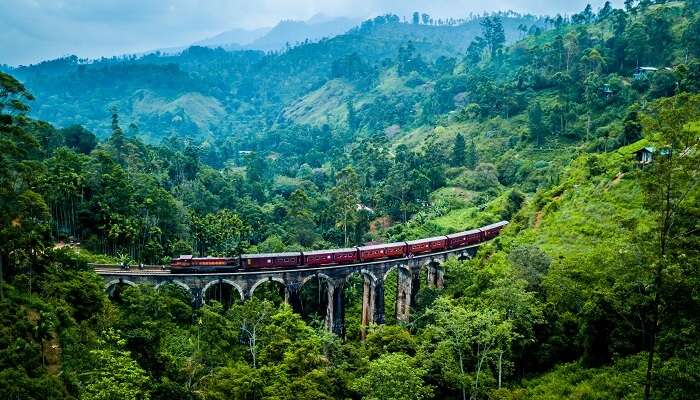
6 Places To Visit In Sri Lanka In 2 Days For A Quick Getaway

6 Best Picnic Places In Sri Lanka To Spend Quality Time With Your Loved Ones
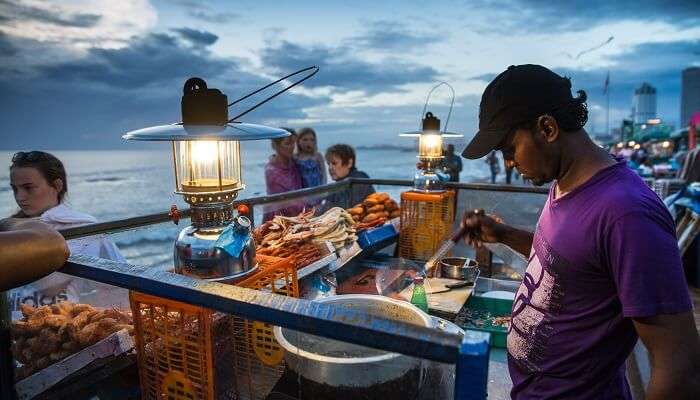
7 Droolworthy Street Food In Colombo To Savour On Your Next Trip
Trending Blogs
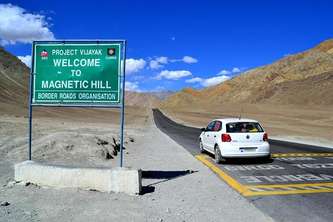
20 Mysterious Places In India To Visit In 2023 More Bizarre Than The Bermuda Triangle
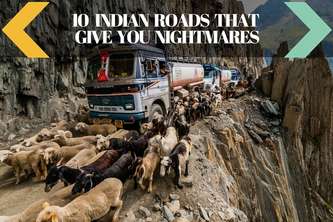
10 Scariest Roads In India That Are A Driver’s Nightmare
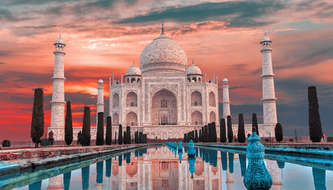
101 Places To Visit In India Before You Turn 30 in 2024

35 Exotic Places To Visit In December In India 2024 To Enjoy A Surreal Vacation

60 Best Honeymoon Destinations In India In 2024

95 Best Honeymoon Destinations In The World In 2023 For A Romantic Escape!
Best Places To Visit In India By Month
Best places to visit outside india by month.
- TravelTriangle
- Sri Lanka »
- Tour Packages
- Honeymoon Packages
- Family Packages
- Budget Tour Packages
- Luxury Tour Packages
- Adventure Tour Packages
- Group Tour Packages
- Kerala Tour Packages
- Goa Tour Packages
- Andaman Tour Packages
- Sikkim Tour Packages
- Himachal Tour Packages
- Uttarakhand Tour Packages
- Rajasthan Tour Packages
- Tour Packages From Delhi
- Tour Packages From Mumbai
- Tour Packages From Bangalore
- Tour Packages From Chennai
- Tour Packages From Kolkata
- Tour Packages From Hyderabad
- Tour Packages From Ahmedabad
- Kerala Tourism
- Goa Tourism
- Sikkim Tourism
- Andaman Tourism
- Himachal Tourism
- Uttarakhand Tourism
- Rajasthan Tourism
- Hotels in Kerala
- Hotels in Goa
- Hotels in Sikkim
- Hotels in Andaman
- Hotels in Himachal
- Hotels in Uttarakhand
- Hotels in Rajasthan
Welcome to Ministry Of Tourism Development, Wildlife And Christian Religious Affairs
Font Resizer
Modal title.
About homestay
Community Based Tourism is a form of sustainable tourism that allows visitors to connect closely with the communities they visit. This emerging form of travel gives tourists authentic experiences, while allowing revenue generated by tourism to remain in the often rural, poor, or economically marginalized community. Community-Based Tourism provides a source of income for rural community and they invite tourists to visit their communities with the provision of overnight accommodation. It is as practical method for the development of rural communities because it empowers these communities to determine the rate of development, implement initiatives to protect the environment and promote awareness through cultural exchanges.
A homestay refers to the experience of tourists or visitors living together with a selected host family while interacting and experiencing the day to day life of the family, including their cultural lifestyle. The visitors will have the opportunity to participate in routine activities of the community as well as interact with the hosts in the exchange of knowledge, culture and experience. As such, homestay programs can indirectly function as a tool of development by increasing awareness among rural communities on preserving the cleanliness of their environment. Community tourism not only encourages cross-cultural understanding between host and visitor but also embraces the bottom line of environmental protection, cultural conservation, social responsibility, economic health, and the enhancement of livelihoods. Because communities are the owners of these tourism enterprises, they have the incentive to establish standards for international tourists and invest in a quality tourism product.
Welcome to Sri Lanka Village Homestay
Welcome to sri lanka community homestay villages.
Ministry of Tourism has been implemented Community Village Homestay Project Since 2016 to promote & develop accommodation and activity in rural areas of Sri Lanka
Community Homestay Gallery
Rural attractions of Sri Lanka include Heel Oya, Atanwala, Mederipitiya, Yapahugama, Bomburuella, Seelogama, Viharahena, and the list goes on. Feel the taste of authentic Sri Lankan food, farming & hospitality of the Pearl of Indian Ocean.

- Bomburu Ella

- Mederipitiya

Our Vision is to be recognized as the world’s finest Island for memorable, authentic and diverse experience.
- 2nd Floor, Asset Arcade Building, 51/2/1, York Street, Colombo 01, Sri Lanka
- +94 11 232 1222
- [email protected]
2024 © Ministry of Tourism
Site by Xiteb

- Tour Type Adventure Beach Boat Plus Custom ECO Helicopter Plus Heritage Spiritual Train Plus Volunteer Wildlife
- Accomodation Homestay Villa, Cottage and Cabanas Star Hotel
- Destination Dolphin Dance Jaffna Life Elephant Kingdom Hill Country Coastal Paradise Wildlife City Ancient City Waterfall City Garden City Capital City
- Month January February March April May June July August September October November December
- Search Tours
WHY CHOOSE ECO Treat Sri Lanka?
Imagination, latest eco treat tours.
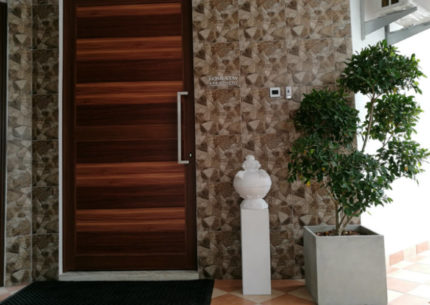
Homestay Apartment
Colombo Sri Lanka ECO Treats Homestay Apartment is offer FREE shuttle service facility from airport to the destination.
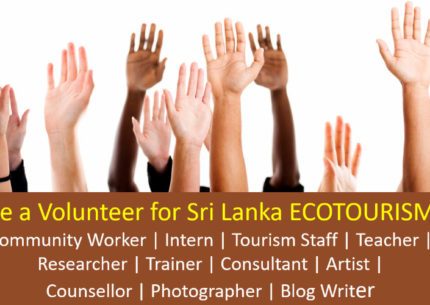
Be a Volunteer
Be a Volunteer for ECOTOURISM projects and organizations in Sri Lanka and contribute to sustainable development goals.
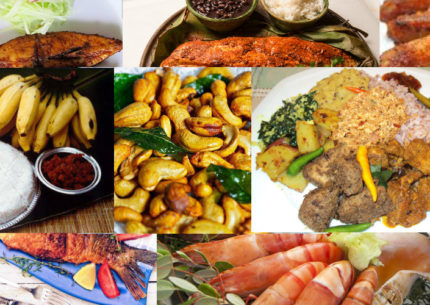
Food Lovers Tour
Sri Lankan foods, sweets, fruits will be served in natural locations such as in beaches, forests and historical cities.
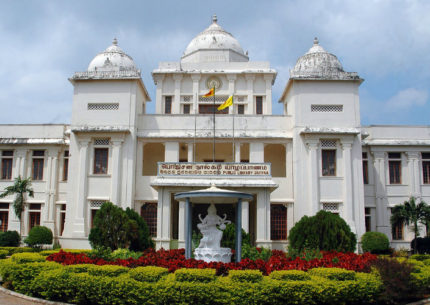
Jaffna Life
Jaffna peninsula is one of the very exclusive destinations in Sri Lanka full of natural beauty including beaches and lagoons.
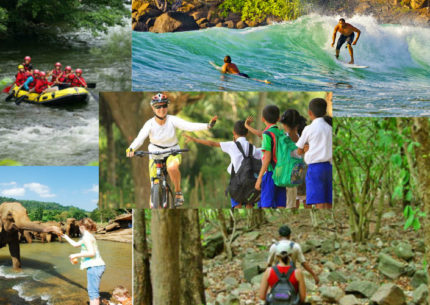
Life Challenge
A Tour full of adventure associated with the nature, beutiful beaches and wildlife in the Southern coast and Hill country, Pinnawala in Sri Lanka.
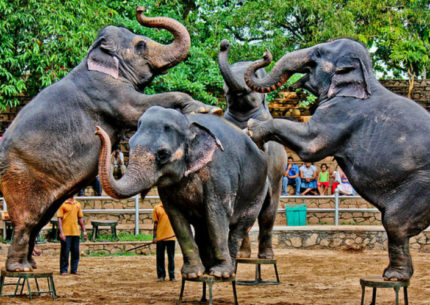
Family Happiness
A memorable family holiday for you and your kids to relax and release your potential indulging with the nature and its beauty.
Homestay PLUS Tour Packages
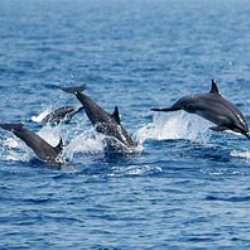
Our ECO Treat Network in Sri Lanka
Reserve Tour with Homestay
DEALS, DISCOUNTS AND BUDGET TOURS
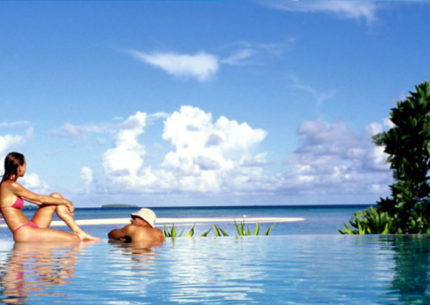
Romance for Life
This is an ideal tour to arrange your dream wedding or Honeymoon in beautiful Sri Lanka with total fun and adventure.
Invitation to 100 Women-Led Homestay Hosts Free Registration
This is a novel project concept as a response for Covid-19 impact to heal women-led micro and small homestay hosts in Sri Lanka
JOIN THE NEWSLETTER

Welcome to Ayubowan Homestay in Sri Lanka
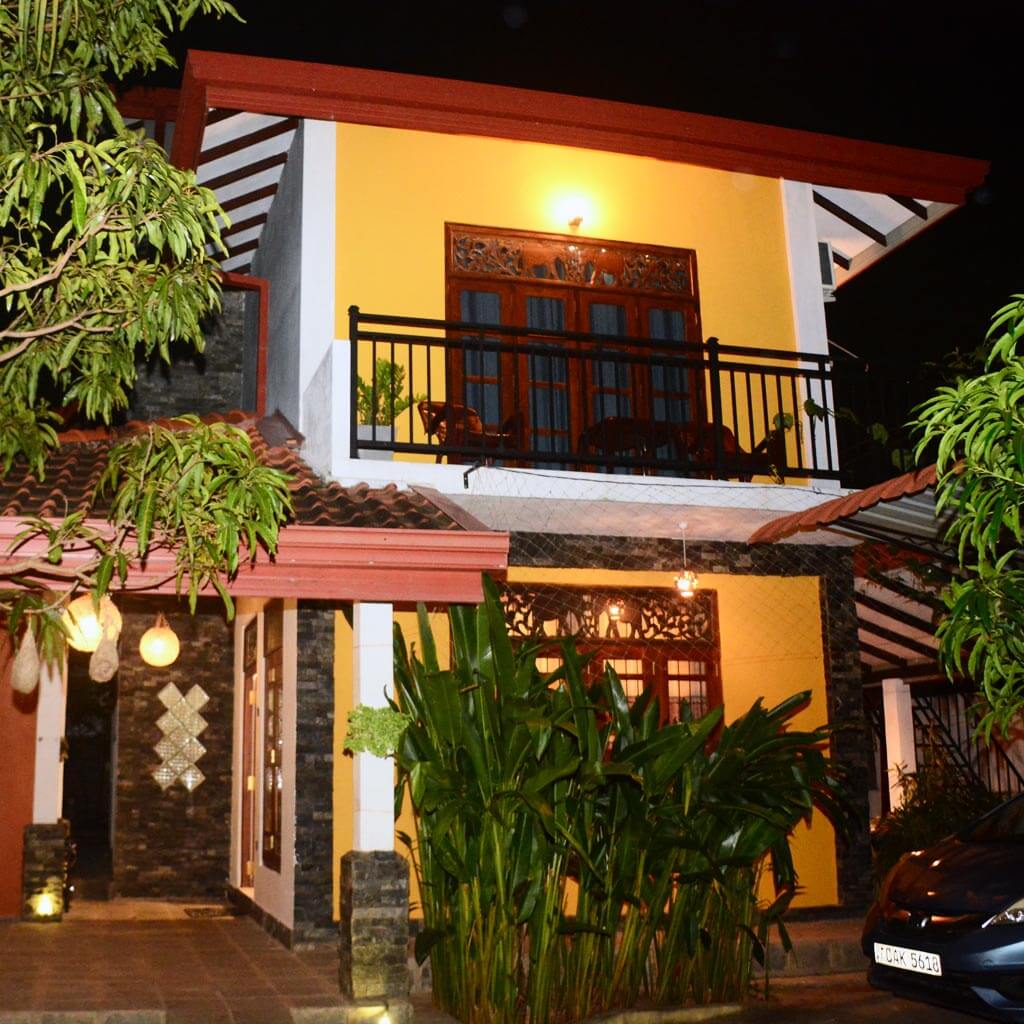
Ayubowan Homestay
Facilities & amenities.
Why choose our homestay?
- We are located 10 minutes away from Colombo International airport.
- We provide free airport arrival and departure transfers.
- Early check-in and late check-out are possible.
- We are located in a very calm and peaceful environment but near to many restaurants, banks, super markets, bus station and the railway station.
- International or local breakfast is provided with Ceylon tea, Espresso coffee or Cappuccino.
- Local cuisines, sea food and beverages are available at “Thambili” Restaurant for Lunch and Dinner.
- Free travel advisory for planning your tour in Sri Lanka by a Professional national tourist guide.
- We have guides who are fluent in English, Italian, German and French.
- High speed fiber internet.
- Local cookery demonstration available which includes an optional early morning trip to Negombo to purchase fresh produce - fish/vegetable market tour at no extra charge.
- Transport and Day tours.

What Our Customer Say About Us?
Highly recommend
From Australia
Great for a stay
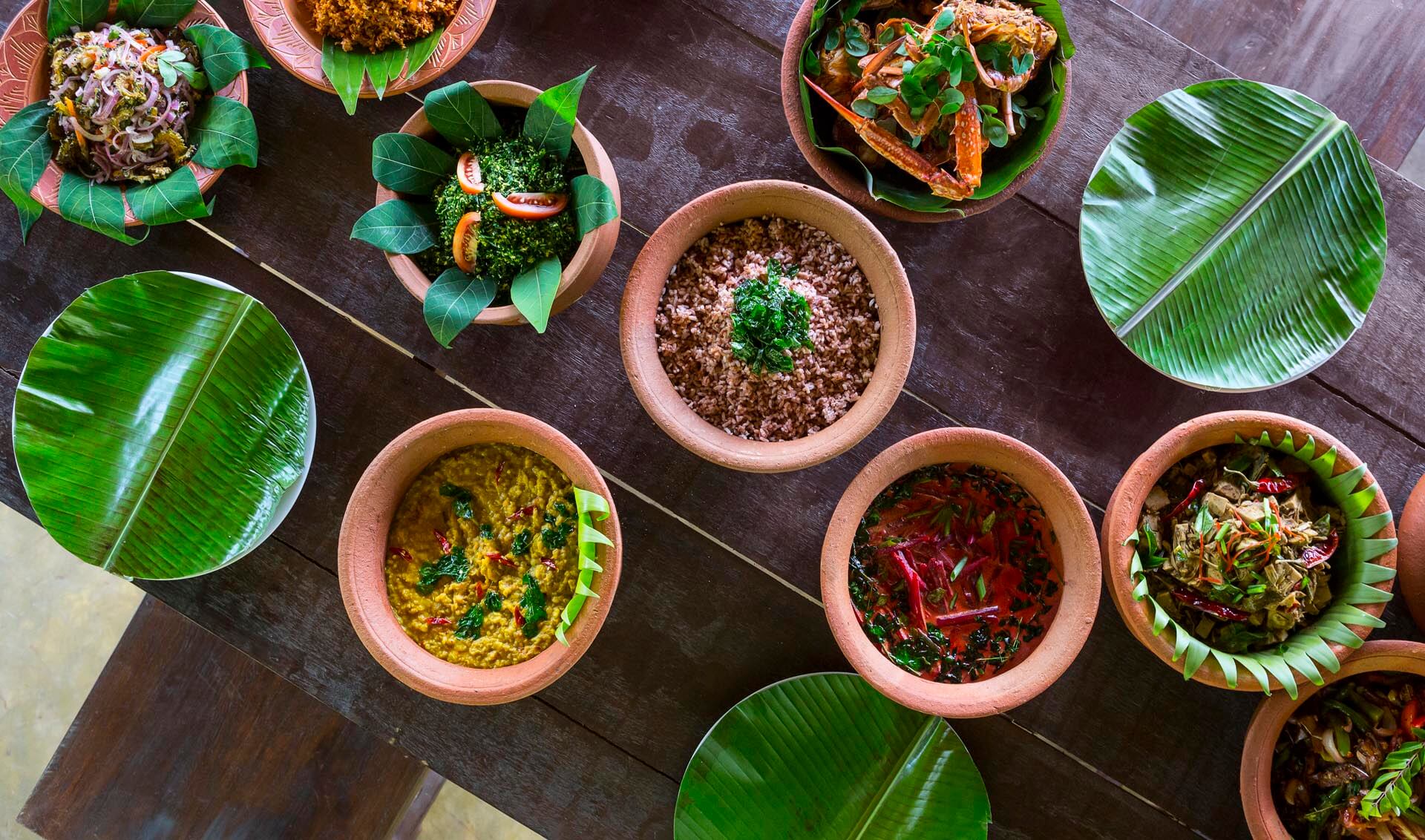
Cookery Classes at Ayubowan Homestay
- Welcome drink
- Optional morning fish / vegetable market trip to purchase produce
- Demonstration of a selection of curries with recipes
- Learn how to make special curry powder
- Learn to how make Green Salad (Mallum) and Coconut Sambol
- Local desserts
- Ceylon Tea, Espresso or Cappuccino
- Location : Ayubowan Homestay
- Lunch Time :11.00 to 15.00
- Dinner Time : 17.00 to 21.00
- +94 31 22 81 692
- +94 71 62 53 884
- [email protected]
Pay Now Stay Later OFF 50%

Taste of Homestay: How to Have a Home Cooked Feast in Sri Lanka
Have you ever heard of an institution that is homestay in Sri Lanka?
Sri Lanka is a dream for the mindful traveler wanting to ensure their tourism dollars support the local community directly. And for the budget traveler who cringes just thinking of hostels. Enter homestays.
For not much more than the price of an average hostel bed you can get a perfectly clean and cozy room with a local family and rest assured – literally – that every penny spent supports that very family’s budget. Responsible travel right there. Triple win.

And if you want to help the family out even more – order your breakfast and/or dinner with them. Goes without saying that it will be a real home cooked feast prepared in their kitchen often right in front of your eyes.
Indeed, I heard stories of travelers accompanying hosts not only in the kitchen while making the meal but even to the local market to help choose the seafood or produce they would later see on their plate! How cool is that?
However, not all Sri Lankan homestays – and homestay meals – where created equal. I won’t get into the details of differing room standards, that’s an obvious one. Let’s focus on food.
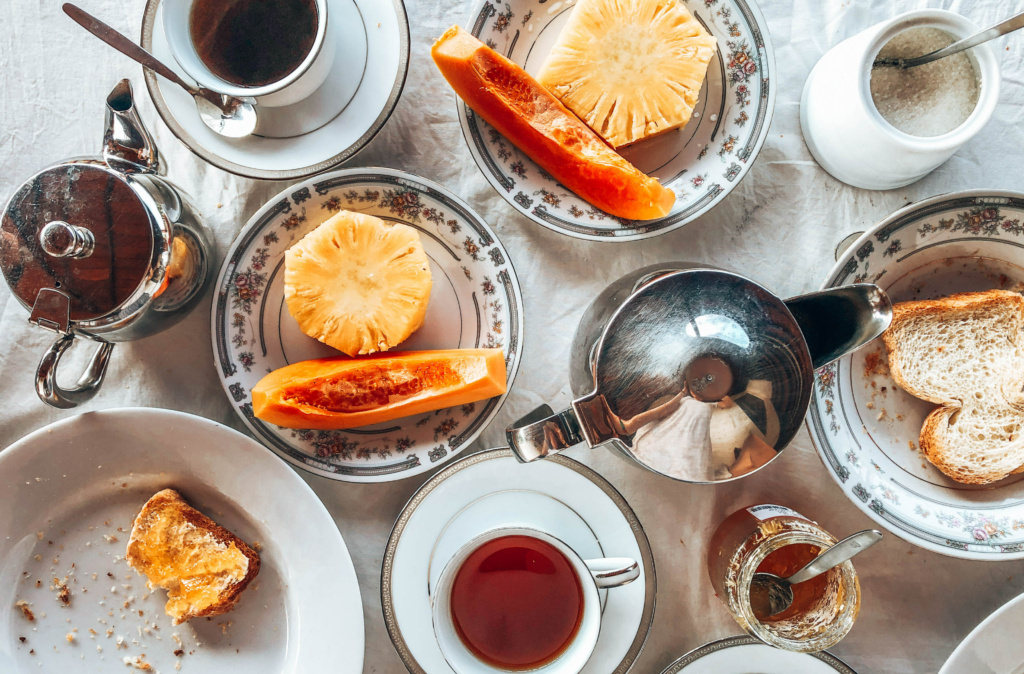
I had researched our homestays diligently focusing on the food they serve, and most of our bookings where a hit. However, one place had unfortunately just changed their breakfast menu to respond to their Western guests’ preferences. Damn you previous guests. They basically started serving scrambled eggs and toast with jam instead of egg hoppers. 🙁
Learn on our mistakes and always double check with the host that they still serve local rather than ‘western’ breakfast.
Here are homestays in Sri Lanka I’d recommend for those of you wanting to experience a real Sri Lankan home cooked meal.
Guest Inn Avendra in Ella
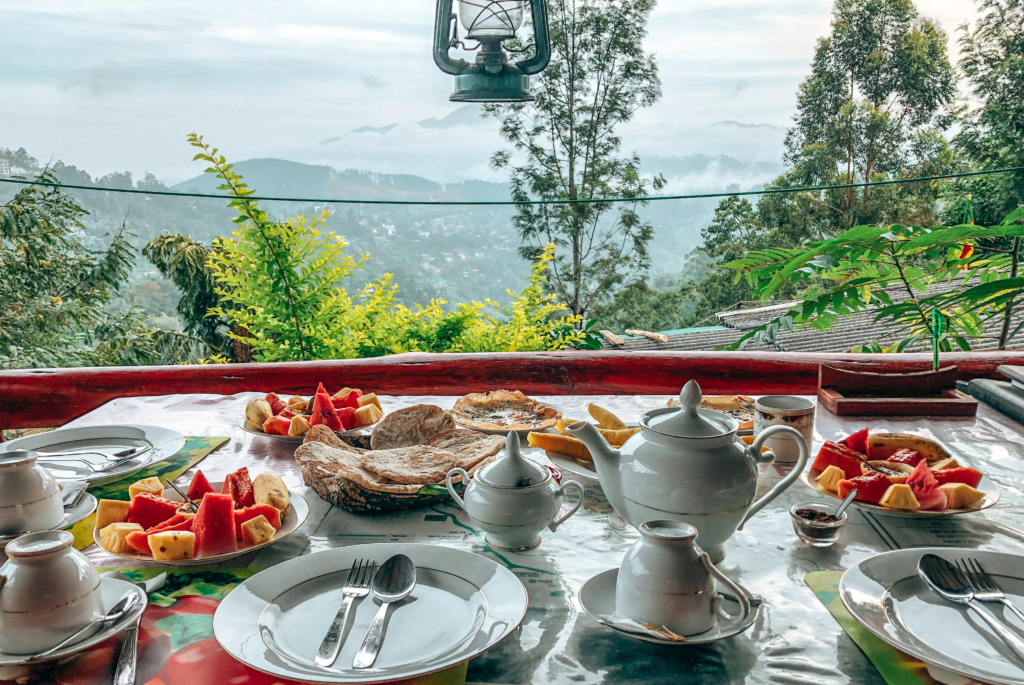
We didn’t like Ella. There, I said it. It’s a town that grew artificially as tourism increased brought in by the popularity of the Ella-Kandy train route. Many visitors treat Ella exactly as this: arrival or departure point for the famed railway journey.
The town itself is not much more than a long dusty busy road lined with mediocre but overpriced curry & rice cafes, western pizza & pasta parlours, cocktail lounges with happy hour mojitos and live music featuring Ed Sheeran, souvenir shops and questionable Ayurveda spas.
Even the famous Little Adam’s Peak was a slight disappointment having gone to Lipton’s Seat prior to that. (The proper ‘big’ Adam’s Peak 3 hours away is a different story altogether and definitely on our list for next time!)
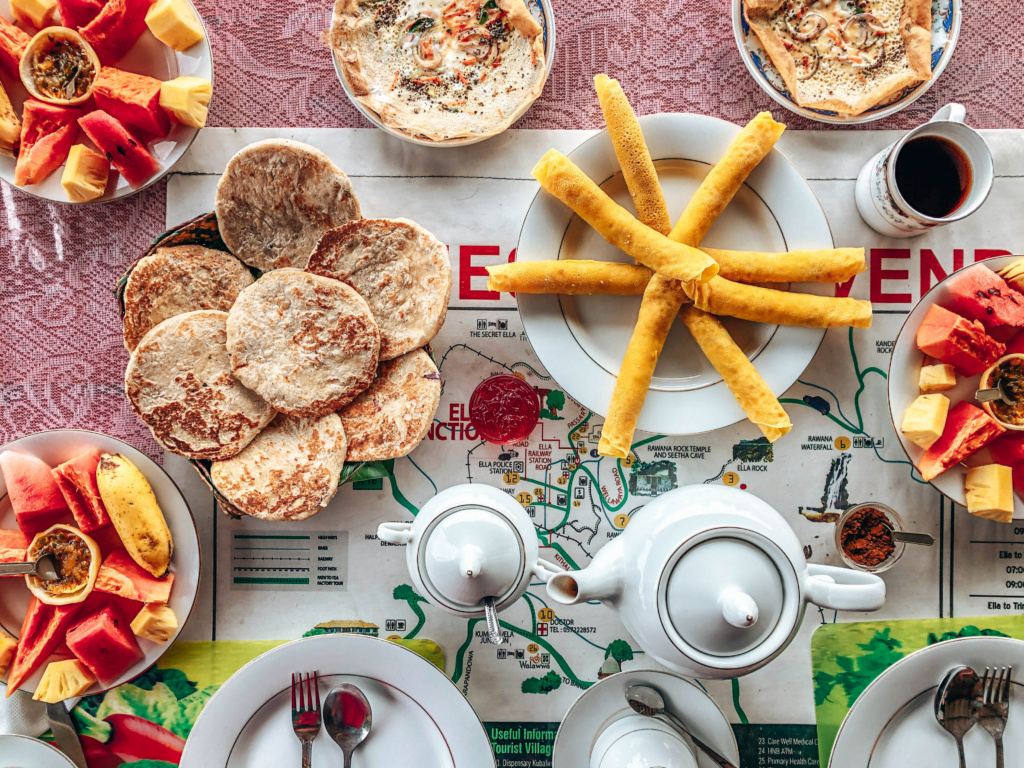
However, there are some other beautiful hikes to be had in the area (Ravana Falls, Ella Rock). And then there is the Nine Arch Bridge – a feat of architecture that’s not just a backdrop for that famous Instagram shot (guilty!) but also an important piece of Sri Lanka’s colonial past.
Check out this post on what snacks to look out for while visiting the bridge.
Should you decide to stay in Ella over a night or two, I recommend choosing an accommodation that will also provide your meals, as there’s not much to write home about when it comes to places to eat in Ella Town.
For a traveler on a higher budget 98 Acres Resort set on a tea plantation is a beautiful experience. For the budget traveler looking to stay with a local family look no further than Avendra Inn homestay.

Away from Ella town’s hustle, bustle and dust, yet close enough to get in and out by tuk tuk easily (the father will sort that out for you anyways!) is this stunningly set family home. Here your breakfast and dinner will be served on a terrace overlooking the surrounding Ella hills, to the sound of the famous blue train passing by below, and with the widest of smiles! I mean, just look at the photos.
Run by a mother, father and son trio, Avendra truly represents the best of Sri Lankan hospitality and I can’t recommend them enough. When booking, ask about their top floor deluxe room for an even better view.
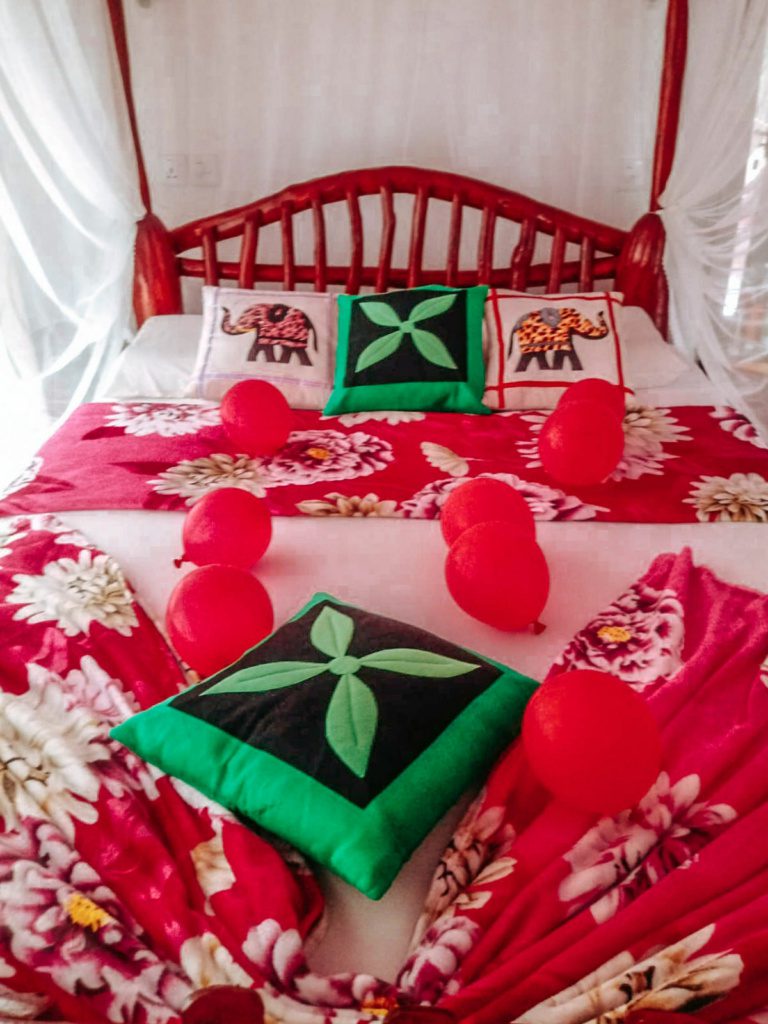
If you must eat out in town, you can’t really avoid tourist traps in Ella. But for fairly authentic fare that won’t be a total rip off I recommend Jade Green run by a husband wife duo. Alternatively, head to the tiny Ramesh Store and Restaurant where local tuk tuk drivers gather – and dine – always a good sign. (May be hard to find, it’s on the junction with Station Road).
Garden Inn in Mirissa
The location may put some people off. Walking after dark may require a flashlight and the road leading up to it is so tiny only a tuk tuk can get up there. That said, it’s only a 10 min walk from the main beach in Mirissa and it’s very close to the oh-so-famous Coconut Hill. Which means you have a good chance to get there in time for sunrise.
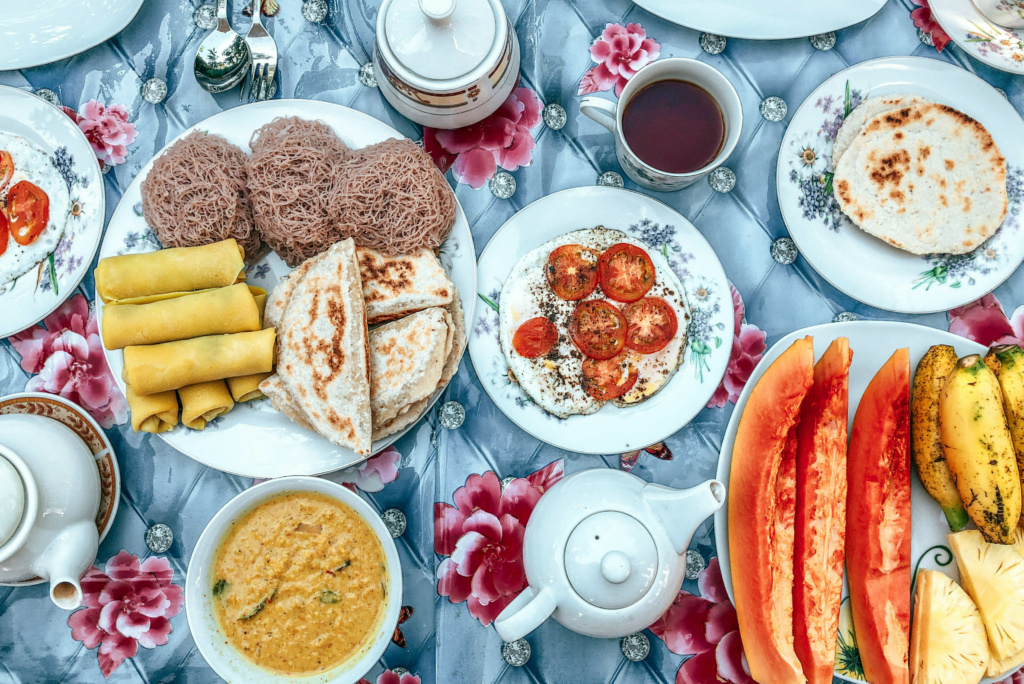
The rooms are comfortable and clean and all en suite (no AC might be an issue though). It’s also quiet and set in a pretty garden on the edge of a forest full of monkeys which made my mum’s day. And – most importantly – the breakfast more than made up for any discomforts!
There was fresh fruit, string hoppers with dahl, coconut roti, stuffed roti, fish toast, jaggery and coconut pancakes. Oh and tomato omelets for a small Western touch. We couldn’t finish it!
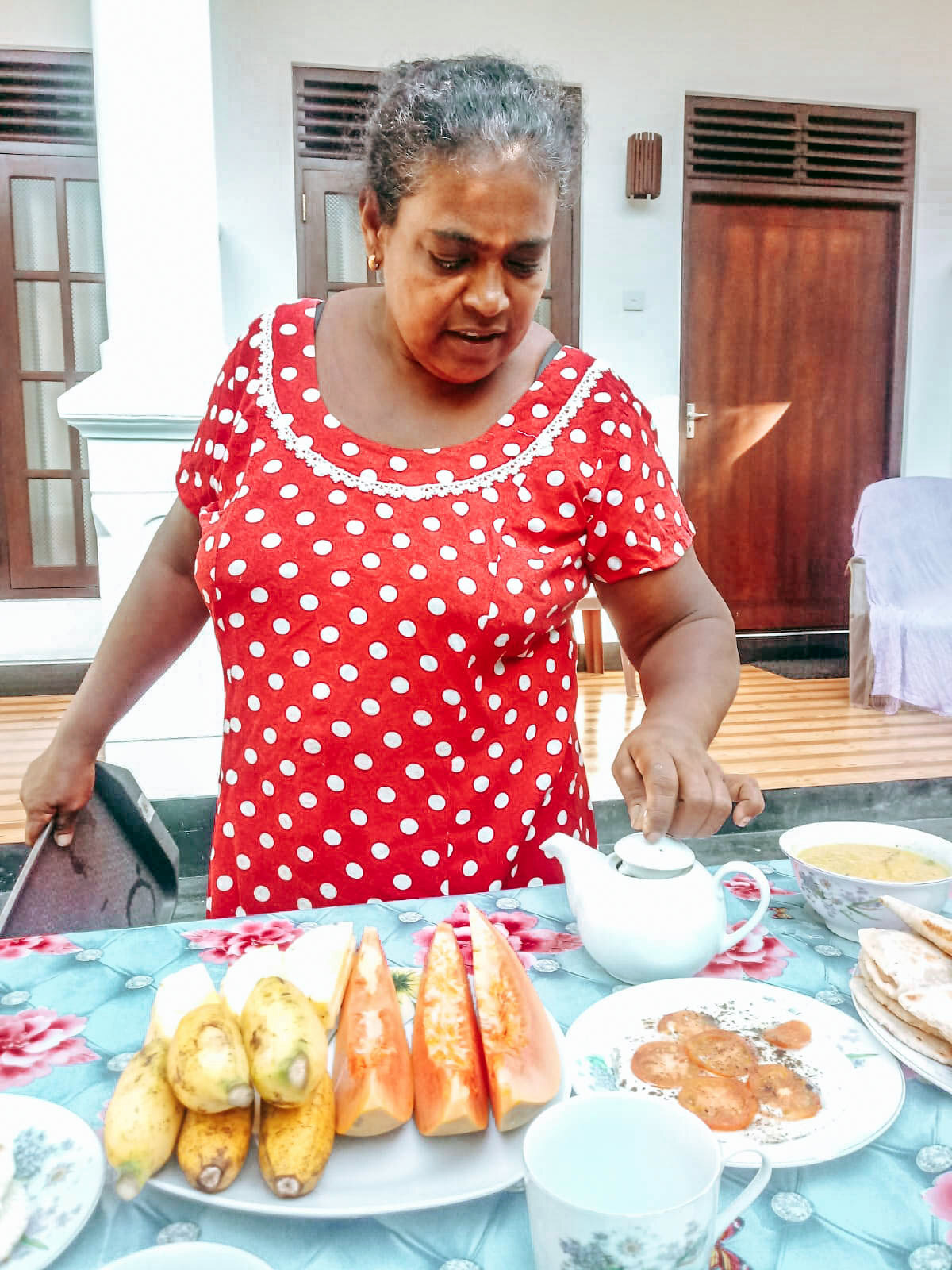
Ask for ginger tea with your breakfast which at Garden Inn means a teapot of strong Ceylon tea infused with heaps of fresh ginger, we couldn’t get enough of it!
Find our guide to what and where to eat in Mirissa here .
White Monkey Dias Rest in Happutale
The Best. Pol Sambol. In Sri Lanka. (And some of the best views to match it). While breakfast there was not as elaborate as at other homestays, the few ingredients that were served: fruit, pol roti, eggs and pol sambol, were fresh and delicious.
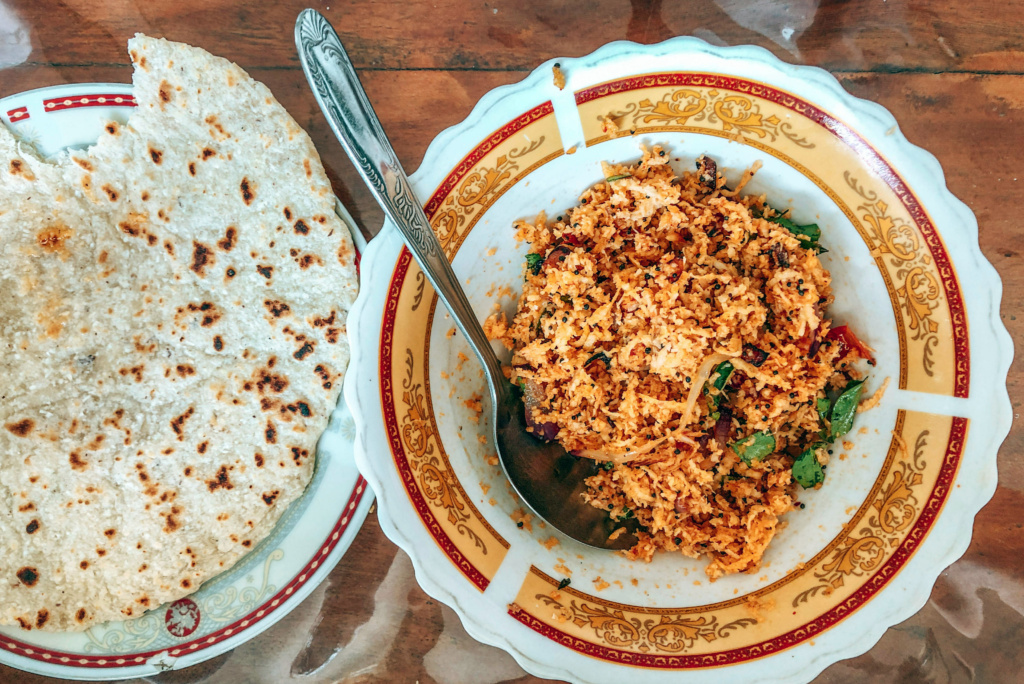
The star of the show was pol sambol though. We had eaten so much of the stuff while in Sri Lanka but with a spoonful of the White Monkey pol sambol it was like having it for the very first time and no other pol sambol after that came even close. Amazing.
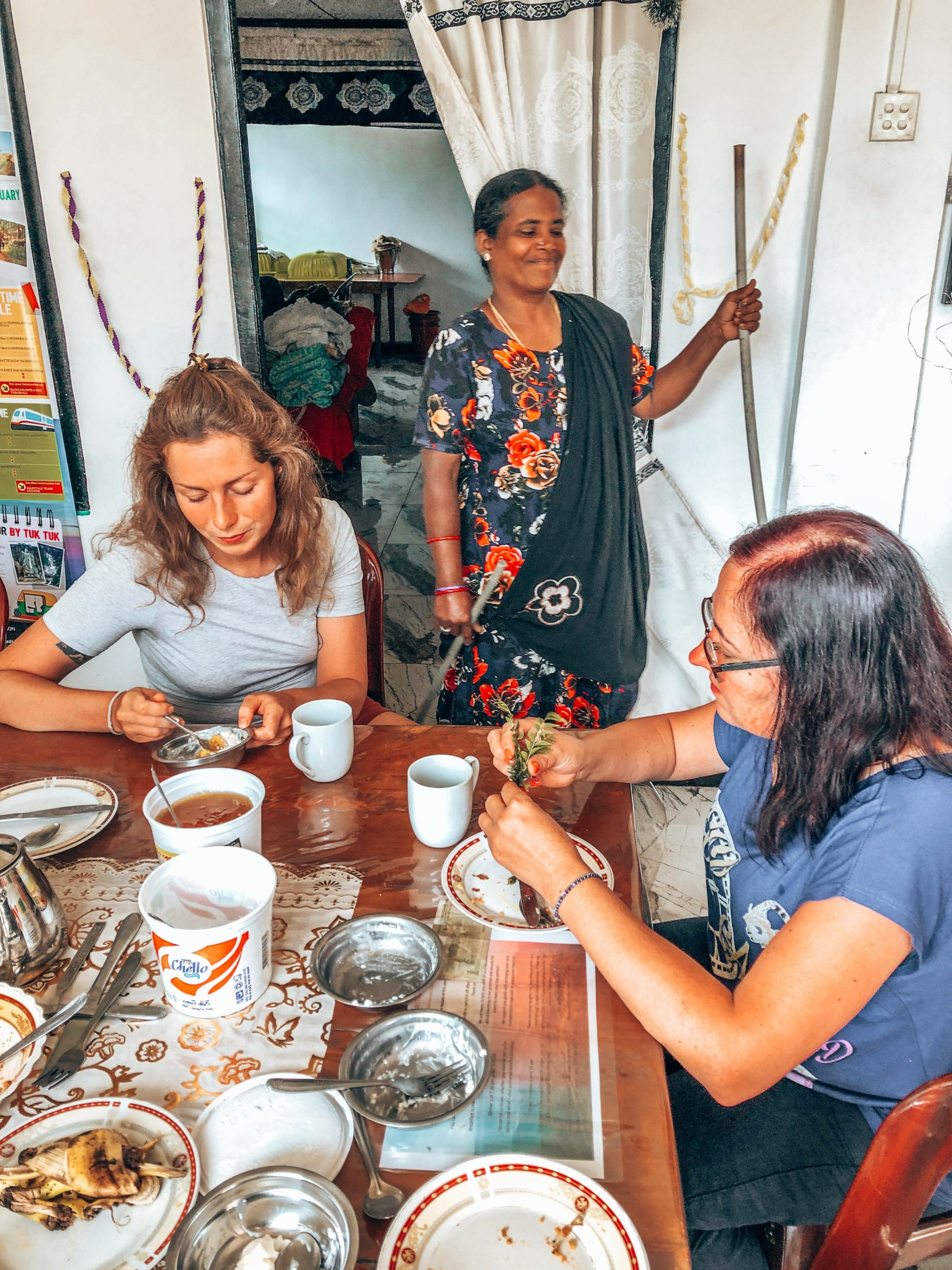
Granted, it was a communal table kind of breakfast and it had just run out. When I asked for some more I didn’t expect that the house lady would actually whip up a whole fresh batch on the spot. It was still warm straight off the pan! I’ll never forget that bite of warm coconut roti loaded with fresh pol sambol. Definitely one of the food highlights of the trip in one simple bite.
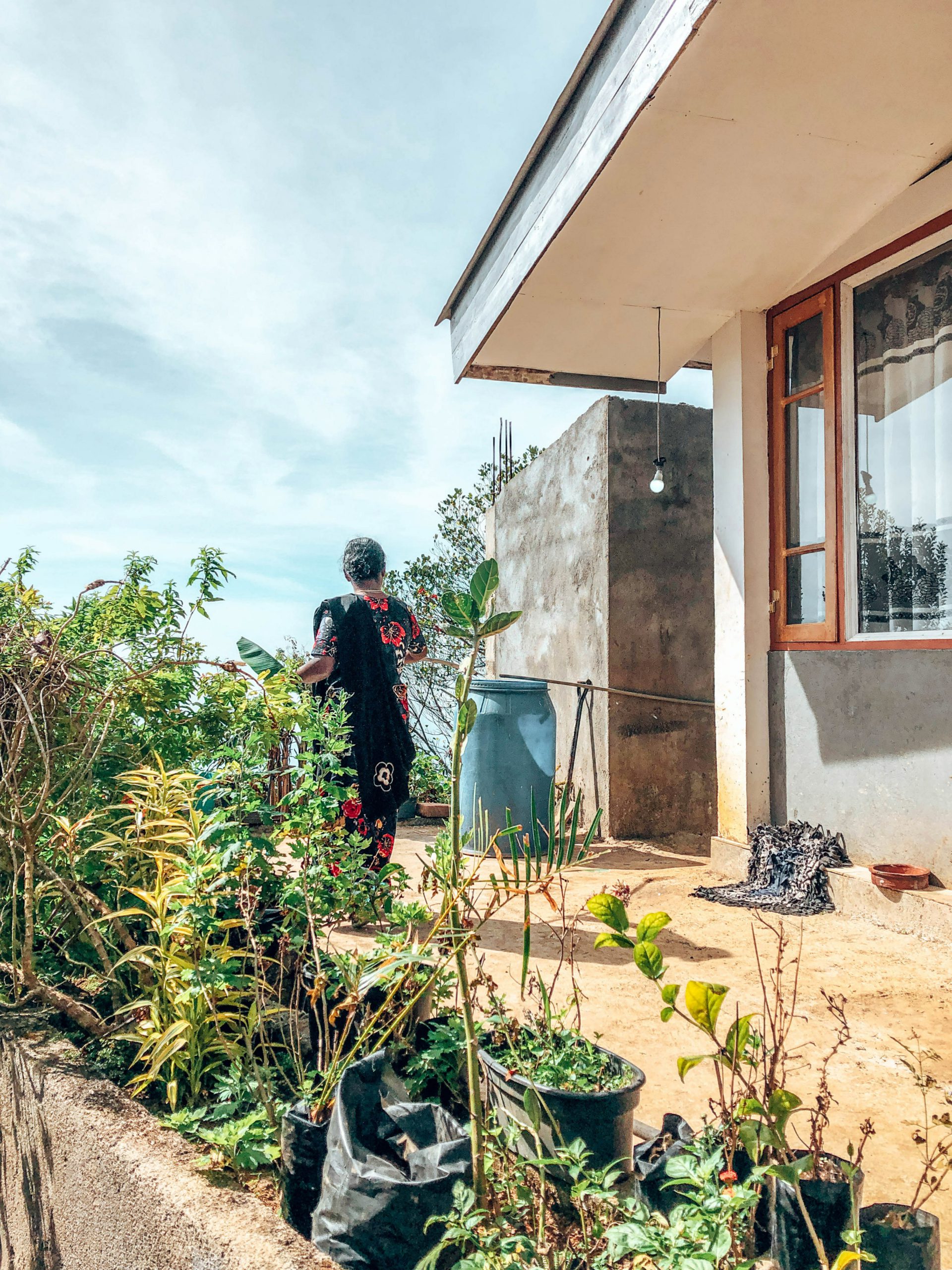
Another major highlight was a morning cup of tea at Lipton’s Seat which happens to be in vicinity of White Monkey. Top tip: local school starts at 7:30 and the tea-pickers begin work around 8:30 so time your tuk tuk ride around those times because it adds to the experience. The students in their snow white uniforms walking through the green terraces of tea is a sight to behold. You can also hike there directly from the homestay.
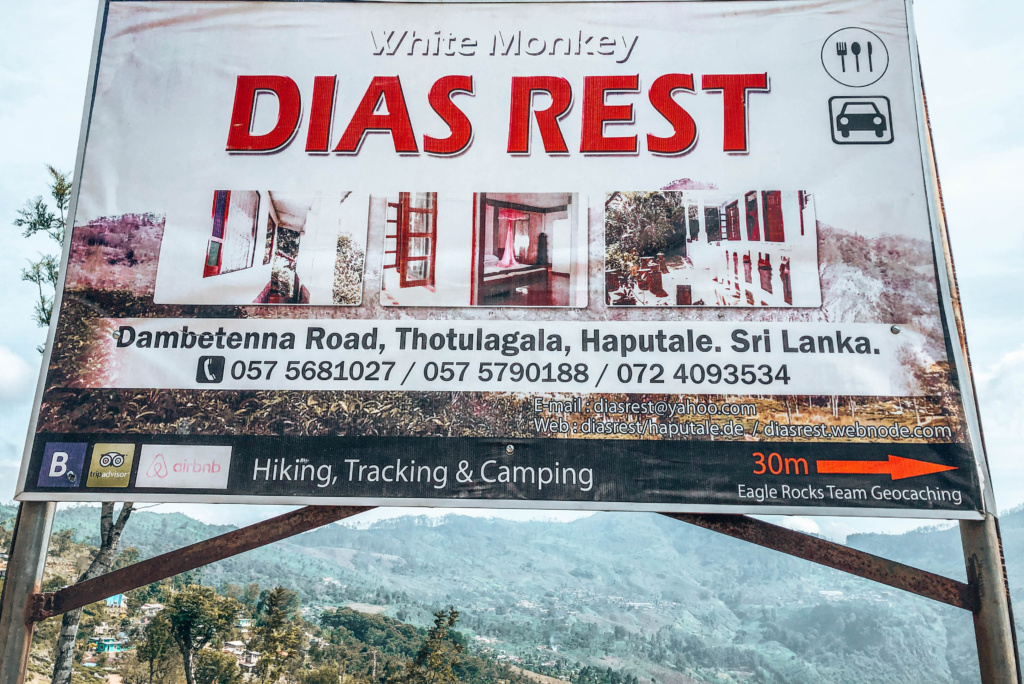
Freedom Homestay in Sigiriya
We ended up not staying there as due to workload (we work on the go which requires a lot of compromises) we had to skip Sigiriya this time. But I had spent a LONG time researching where the best breakfast was in that part of Sri Lanka and Freedom Homestay was what we had provisionally booked.
According to previous guests they are supposed to have “the best breakfast in Sri Lanka” served in a “garden full of birds and monkeys”. At $13 for a cozy double room including breakfast, I’d be happy even if it was second best…
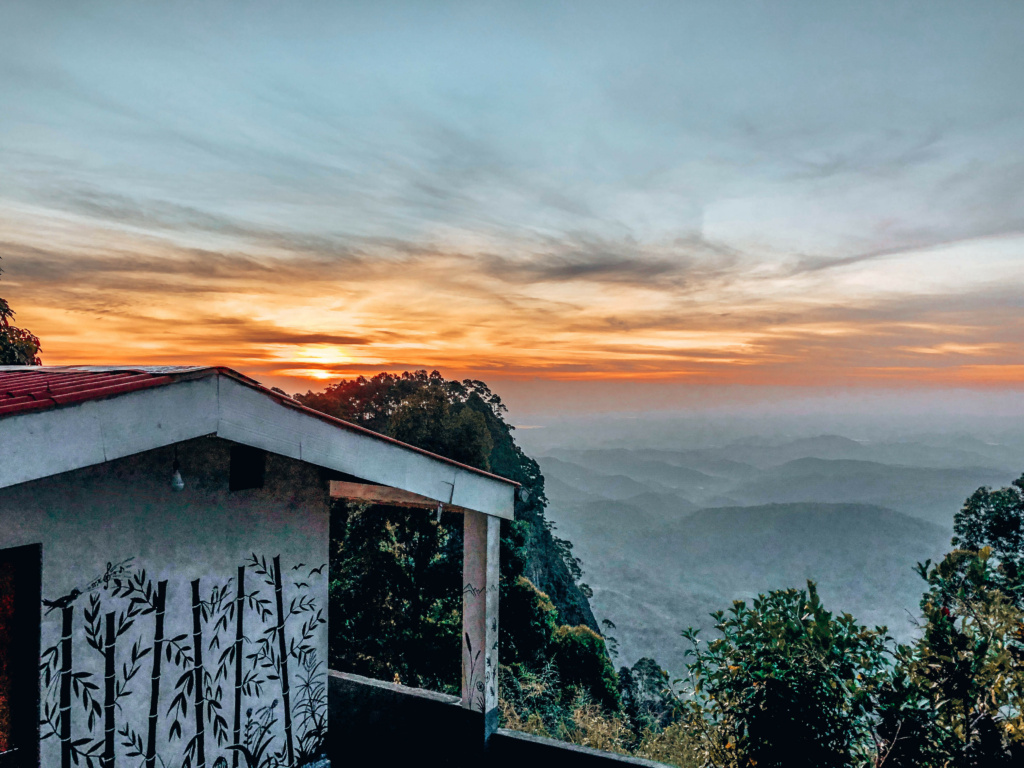
Note: we didn’t eat any dinners at the above homestays as we were always out and about exploring local restaurants. But judging by their breakfasts you can’t go wrong with an evening meal either.
Have you stayed at any of the above accommodations? Let us know if you have any other Sri Lankan homestays to recommend in the comments below!
Book tours and activities in Sri Lanka with Get Your Guide now!
You May Also Like

Flora Farms in Cabo, Mexico: Organic Paradise

Bring Your Own Bag: A Mindful Traveler’s Guide to Portland
Leave a comment cancel reply.
You must be logged in to post a comment.
20th April, 2024
SLTDA to strengthen ‘homestay’ tourism
28 Dec 2023 | BY Roshani Fernando
Amidst the demand Sri Lanka tourism is picking up, Sri Lanka Tourism Development Authority (SLTDA) is streamlining and strengthening the operation of the homestay segment, The Daily Morning Business learnt.
Speaking to The Daily Morning Business , Chairman of SLTDA Priantha Fernando said: “ 23% of accommodation sector establishments registered are homestays. Quantitatively, I think there are about 3,100 registered homestays already.
Moreover, this will encourage the informal sector to come and register with the SLTDA so that they will also be able to benefit through different training programmes that are being carried out with the Asian Development Bank (ADB) across the country.”
He added that the SLTDA is coming up with an online training platform that would allow interested entrepreneurs to attend sessions at their own pace and then at the end of it, sit for an examination and receive certification.
Additionally, it is a matter of strengthening the segment because the demand is picking up. There will be more people occupying homestays. Therefore, the country has to maintain overall standards such as creating greater awareness of how they should interact with the foreigners, their positives and negatives, so that the community is well aware, Fernando elaborated.
According to SLTDA, the homestay concept has been in existence for a few years in Sri Lanka. Yet, if the country does not maintain the standards and performance, it can have a negative impact on the overall image of the country.
Fernado noted: “ homestays will be much cheaper than hotel rooms. It's a structured accommodation sector that SLTDA will be offering. There are many different segments of tourism. There are guest houses, boutique hotels, villas, and five - four star hotels.”
The rate, in fact, does not depend on whether it is a homestay or boutique hotel. It mainly depends on what is being offered. The homestay operators can establish a price by themselves.
Moreover, it is up to them to build up a demand for their homestay accommodation business. The homestay owner can decide on the marketing aspect such as how to position their product, how to market, how to use social media and web pages to promote the business.
Discover Kapruka, the leading online shopping platform in Sri Lanka, where you can conveniently send Gifts and Flowers to your loved ones for any event. Explore a wide range of popular Shopping Categories on Kapruka, including Toys, Groceries, Electronics, Birthday Cakes, Fruits, Chocolates, Automobile, Mother and Baby Products, Clothing, and Fashion. Additionally, Kapruka offers unique online services like Money Remittance, Astrology, Medicine Delivery, and access to over 700 Top Brands. Also If you’re interested in selling with Kapruka, Partner Central by Kapruka is the best solution to start with. Moreover, through Kapruka Global Shop, you can also enjoy the convenience of purchasing products from renowned platforms like Amazon and eBay and have them delivered to Sri Lanka. Send love straight to their heart this Valentine's with our thoughtful gifts!
More News..
Homestays in Sri Lanka
Find the homestays that appeal to you the most, booking.com loves sri lanka how about you, finding a homestay is easy with booking.com. more choice, more destinations., 271 homestays, nuwara eliya, 141 homestays, 47 homestays, 155 homestays, 306 homestays, 196 homestays, anuradhapura, 129 homestays, trincomalee, 48 homestays, 29 homestays, 154 homestays, 204 homestays, 215 homestays, 6 homestays, 12 homestays, mount lavinia, 13 homestays, search homestays - top regions in sri lanka, jaffna district, 39 homestays, yala national park, 63 homestays, kurunegala district, 16 homestays, batticaloa district, 31 homestays, badulla district, 403 homestays, nuwara eliya district, 199 homestays, gampaha district, 246 homestays, kalutara district, 148 homestays, colombo district, 134 homestays, kalutara beach, knuckles mountain range, ratnapura district, 117 homestays, galle district, 1060 homestays, matara district, 633 homestays, wilpattu national park, 8 homestays, the 10 best homestays in sri lanka check out our pick of great homestays in sri lanka.
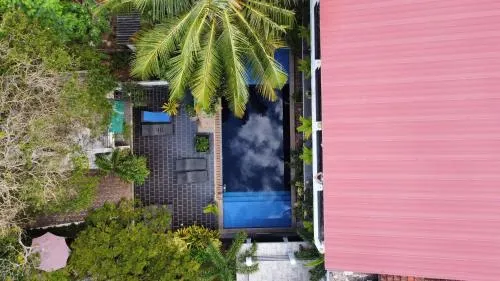
Serendib Village Guest House
Homestay in Negombo
9.0 Superb 2,024 reviews
Serendib Village Guest House features spa facilities and beauty services, as well as air-conditioned accommodation in Negombo, 400 metres from Negombo Beach. There is an in-house restaurant, plus free private parking and free WiFi are available. The accommodation offers a 24-hour front desk, full-day security and currency exchange for guests.
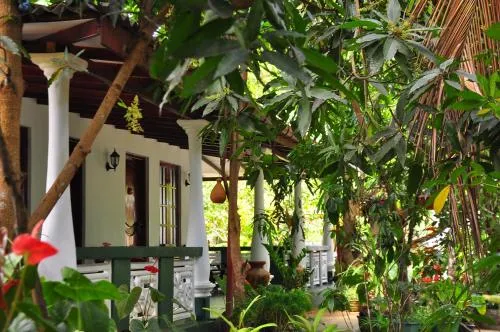
Sigiri Rock Side Home Stay
Homestay in Sigiriya
9.5 Exceptional 1,204 reviews
Bike hire is available at this homestay and the area is popular for cycling. The homestay also offers car hire. Sigiriya Rock is 800 metres from Sigiri Rock Side Home Stay , while Pidurangala Rock is 1.8 km from the property.

Mystique Hideout
Homestay in Kandy
9.2 Superb 109 reviews
Set within 2.3 km of Kandy City Center Shopping Mall and 2.6 km of Bogambara Stadium in Kandy, Mystique Hideout offers accommodation with seating area. Private parking is available on site at this recently renovated property. The guest house features family rooms.
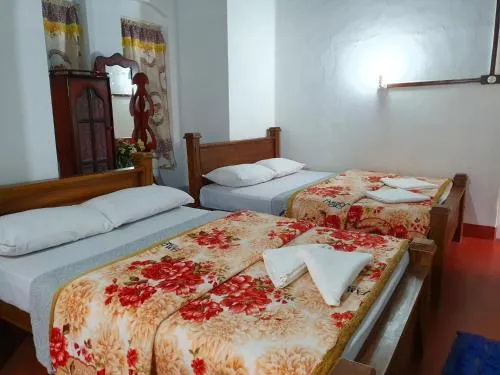
Ruchi House
Homestay in Nuwara Eliya
9.5 Exceptional 103 reviews
Set just 3.8 km from Gregory Lake, Ruchi House provides accommodation in Nuwara Eliya with access to barbecue facilities, a shared lounge, as well as a 24-hour front desk. It is located 11 km from Hakgala Botanical Garden and features a shared kitchen. There is free private parking and the property offers paid airport shuttle service.
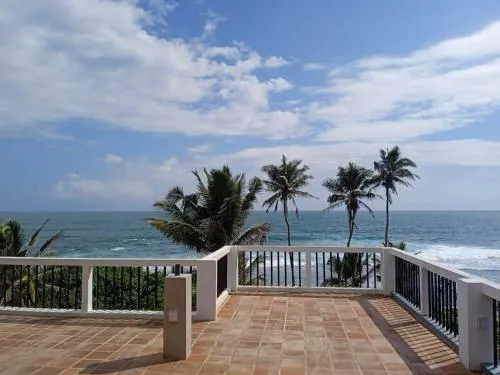
PearlDrop Waves Mirissa
Homestay in Mirissa
9.4 Superb 164 reviews
PearlDrop Waves Mirissa has an indoor pool and air-conditioned guest accommodation in Mirissa, a few steps from Thalaramba Beach, less than 1 km from Mirissa Beach and 2.1 km from Kamburugamuwa Beach. This property offers access to a balcony and free private parking. The accommodation features free WiFi throughout the property, as well as a terrace and a family-friendly restaurant.
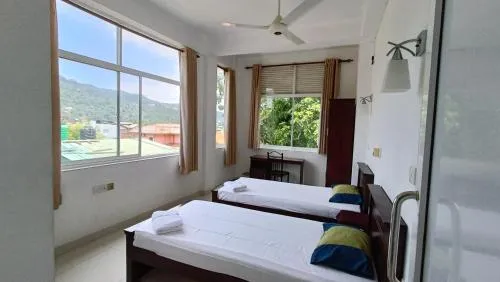
Smile Hub Kandy
9.6 Exceptional 248 reviews
Situated in Kandy and only 1.8 km from Kandy railway station, Smile Hub Kandy features accommodation with mountain views, free WiFi and free private parking. The property has city views and is 2.6 km from Bogambara Stadium and 2.8 km from Kandy City Center Shopping Mall. Kandy Museum is 3.9 km away and Ceylon Tea Museum is 5.3 km from the guest house.
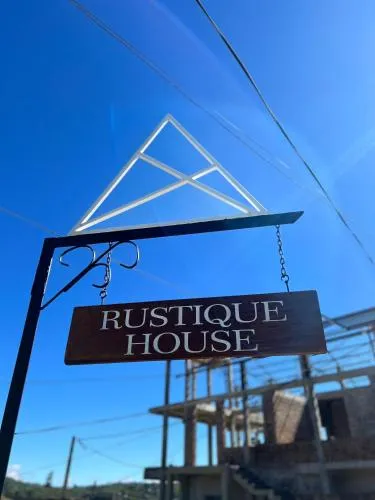
Rustique House dbl
Homestay in Lake Gregory, Nuwara Eliya
9.6 Exceptional 116 reviews
Featuring accommodation with a balcony, Rustique House dbl is situated in Nuwara Eliya. Well situated in the Lake Gregory district, this homestay is located 7.7 km from Hakgala Botanical Garden. The property is non-smoking and is set 1.4 km from Gregory Lake.
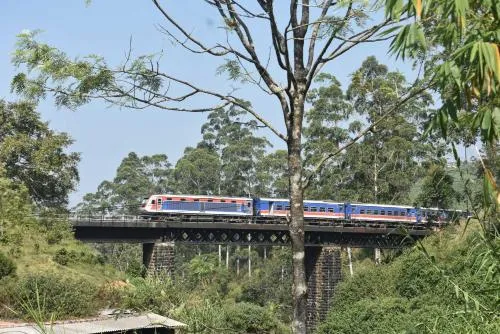
Homestay in Nanu Oya
9.1 Superb 119 reviews
Situated in Nanu Oya and only 7.8 km from Gregory Lake, Ansi Villa features accommodation with mountain views, free WiFi and free private parking. It is set 15 km from Hakgala Botanical Garden and offers room service.
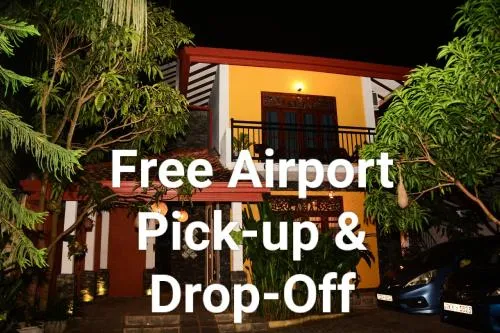
Ayubowan Homestay Katunayake
Homestay in Katunayake
9.7 Exceptional 200 reviews
7.5 km from St Anthony's Church, Ayubowan Homestay Katunayake is a recently renovated property situated in Katunayake and features air-conditioned rooms with free WiFi and private parking. With garden views, this accommodation offers a balcony. The accommodation provides free shuttle service, a shared kitchen and currency exchange for guests.

Namara Green Ella
Homestay in Ella
9.0 Superb 158 reviews
Offering a garden and garden view, Namara Green Ella is set in Ella, 48 km from Hakgala Botanical Garden and 49 km from Horton Plains National Park. The property is around 1.3 km from Ella Railway Station, 2 km from Ella Spice Garden and 4.1 km from Little Adam's Peak. The property offers soundproof units and is situated 4.1 km from Demodara Nine Arch Bridge.
Most booked homestays this month
Handagedara resort & spa 4 stars.
Popular with guests booking homestays in Sri Lanka
Serendib Village Guest House 3 stars
Safari lodge yala.
Homestay in Kataragama
La Ventana Guest House Hirikatiya.
Homestay in Matara
Ella Heritage
Leisure mount view.
Homestay in Haputale
Research, refine and make plans for your whole trip
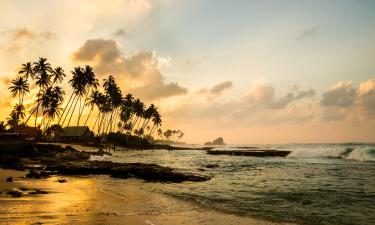
Search hotels
Stay in the know.
Error: Please enter a valid email address
Error: Sorry. An error has occurred.
Thanks! We've sent you an email so you can complete your subscription
List your property
- Mobile version
- Your account
- Make changes to your booking online
- Customer Service help
- Booking.com for Business
- Places of interest
- Guest Houses
- Unique places to stay
- Discover monthly stays
- Unpacked: Travel articles
- Seasonal and holiday deals
- Traveller Review Awards
- Flight finder
- Restaurant reservations
- Booking.com for Travel Agents
- Coronavirus (COVID-19) FAQs
- About Booking.com
- Partner help
- Sustainability
- Press centre
- Safety resource centre
- Investor relations
- Terms & Conditions
- Partner dispute
- How we work
- Privacy & Cookie Statement
- Cookie Settings Manage cookie settings
- MSA Statement
- Corporate contact
- Content guidelines and reporting
Booking.com is part of Booking Holdings Inc., the world leader in online travel and related services.
Verified reviews from real guests.
We have more than 70 million property reviews, and they're all from real, verified guests .
How does it work?
It starts with a booking.
The only way to leave a review is to first make a booking. That's how we know our reviews come from real guests who have stayed at the property.
Followed by a trip
When guests stay at the property they check out how quiet the room is, how friendly the staff are and more.
And finally, a review
After their trip, guests tell us about their stay. We check for naughty words and verify the authenticity of all guest reviews before adding them to our site.
If you booked through us and want to leave a review, please sign in first.
Check-in date
Check-out date

Sri Lanka plans to implement homestay concept to boost tourism
December 11, 2023 10:19 pm
The Sectoral Oversight Committee on National Economic and Physical Plans in Sri Lanka discussed the government’s goal to attract five million tourists to the country in the year 2024.
The matter was discussed along with the simultaneous preparation of infrastructure development at a Committee meeting held on 08 December, under the Chairmanship of Mahindananda Aluthgamage.
Addressing the Committee, officials of the Ministry of Tourism and Lands mentioned that they have planned to implement the Home Stay concept, while officials also pointed out that plans have been made to bring wealthy tourists to Sri Lanka in the coming year.
Furthermore, in order to attract more tourists to Sri Lanka, the Committee pointed out that the general society of Sri Lanka should be prepared to welcome such tourists in a respectful manner, as opposed to cheating them out of their money. The officials pointed out that training programs are already being conducted in selected areas.
Furthermore, the Committee also pointed out that it is important to identify the places with tourist attractions at the local level and prepare methods to promote them.
In addition, approval was given following consideration of the 2022 annual report of the Ministry of Tourism and Lands, the 2020 annual report of the Tourism Promotion Bureau, the 2022 annual report of the Ministry of Industry and the 2022 annual report of the Registrar of Companies Department, the 2019/2020 annual reports of Kahatagaha Graphite Lanka Limited, the 2021/2022 annual reports of Lanka Phosphate Limited, the 2020 annual report of the Sri Lanka Institute of Textile and Apparel.
Members of Parliament, Eran Wickramaratne, Ashok Abeysinghe, Sudath Manjula, Madhura Withanage and Gunathilaka Rajapaksha were present at the said meeting.

Most Viewed
- Semasinghe optimistic of transforming Sri Lanka to a debt sustainable country
- Oil steadies after surge following reported Israeli attack on Iran
- Heat advisory issued for seven provinces
- Asian stocks fall as concern over Middle East spurs selling
- Indian election: K. Nalini becomes first resident of Sri Lankan refugee camp to vote
Most Viewed Video Stories
Your browser does not support iframes.
Palitha Thewarapperuma: Country bids farewell to beloved politician & 'man of the people'

Cannot View Video? Please Click Here

Election body says it cannot intervene to resolve SLFPs infighting (English)

President pledged to nurture budding entrepreneurs through regional youth centres (English)

Ambitious program Sri Lanka embarked upon is now delivering results: IMF (English)

Former MP Palitha Thewarapperuma's final rites to be performed today (English)

LIVE🔴Ada Derana Prime Time News Bulletin 6.55 pm

LIVE🔴Ada Derana Lunch Time News Bulletin 12.00 pm

Injunction issued preventing Maithripala from functioning as SLFP chairman extended
The role of personality traits in promoting customer citizenship behaviour: special reference to the homestay tourism context in Sri Lanka
South Asian Journal of Marketing
ISSN : 2719-2377
Article publication date: 7 September 2021
Issue publication date: 13 December 2021
This study aims to explore customer personality traits as an antecedent of customer citizenship behaviour which positively facilitates service providers.
Design/methodology/approach
This study follows the positivism research paradigm. Hence, primary data were collected from 250 homestay visitors who stayed at five selected homestays located at Mirissa homestay zone, Sri Lanka.
The present study's findings reveal that “agreeableness,” “extraversion” and “conscientiousness” personality traits promote customer citizenship behaviour. Furthermore, the openness to “experience” trait identified to have a statistically insignificant relationship with CCB and neuroticism recorded a positive impact on the relationship between CCB and personality, contrary to the existing literature.
Practical implications
This study comprehensively explains how service providers should arrange their service facilities to increase customer willingness to perform citizenship behaviour, which helps develop their services.
Originality/value
Previous research has investigated that customer personality in terms of prosocial and proactive nature impacts CCBs. In contrast, the effect of Big Five personality traits on CCB is highlighted in this study.
- Big five personality traits
- Customer citizenship behaviour
- Homestay tourism
Lakmali, S. and Kajendra, K. (2021), "The role of personality traits in promoting customer citizenship behaviour: special reference to the homestay tourism context in Sri Lanka", South Asian Journal of Marketing , Vol. 2 No. 2, pp. 148-167. https://doi.org/10.1108/SAJM-03-2021-0024
Emerald Publishing Limited
Copyright © 2021, Shanika Lakmali and Kanagasabai Kajendra
Published in South Asian Journal of Marketing . Published by Emerald Publishing Limited. This article is published under the Creative Commons Attribution (CC BY 4.0) licence. Anyone may reproduce, distribute, translate and create derivative works of this article (for both commercial and non-commercial purposes), subject to full attribution to the original publication and authors. The full terms of this licence may be seen at http://creativecommons.org/licences/by/4.0/legalcode
Introduction
Tourism is a unique industry that has received many scholars' attention worldwide ( Yung and Khoo-Lattimore, 2019 ; Stamboulis and Skayannis, 2003 ; Ying, 2008 ). Especially studying customer or traveller behaviour is one of the foremost concerns among marketing and tourism scholars. Under the North American Industry Classification System (NAICS), the tourism industry defines as an industry that consists of five main sectors, namely transportation, accommodation, food and beverage, recreation and entertainment, and travel services ( Knowles and Westcott, 2019 ). Among these five sectors, the accommodation sector plays a vital role, as it is one of the most critical decisions made by travellers ( Rompf et al. , 2005 ) due to the availability of different accommodation options such as hotels and Airbnb ( Guttentag, 2015 ) and other alternatives like community-based homestays.
As one of the major accommodation options available, independent homestay businesses can be identified, and it is a form of accommodation where tourists stay with local families in their homes. Primarily, these are characterized as affordable, informal and experiential lodgings available even in the most remote destination ( Dube and Sharma, 2018 ) and are becoming increasingly popular among travellers as the best way to experience different cultures as a local ( Forno and Garibaldi, 2015 ). Compared to travellers who select well-established hotels, travellers who choose homestays are unique ( Jamal et al. , 2011 ; Yang et al. , 2019 ) as they have particular needs ( Yang et al. , 2019 ). Such as expectations of being in a home over a hotel, willingness to ask the host for advice, and preference for other facilities such as access to practical residential amenities such as a full kitchen, a washing machine and a dryer ( Guttentag, 2015 ). Furthermore, Guttentag (2015) has mentioned that living in residence also offers guests the chance to have a more “local” experience by living more like a local, interacting with the host or neighbours, and possibly staying in a non-touristy location. Here guests are expected to contribute to gain the homestay experience ( Forno and Garibaldi, 2015 ; Kontogeorgopoulos et al. , 2015 ; Beverland and Farrelly, 2009 ). Highlighting this sector's specialty, studies carried out from homestay suppliers' perspective found that hosts want to establish a relationship that extends beyond a monetary exchange and wants guests to be surrogate companions rather than solely remunerating strangers ( Domenico and Lynch, 2007 ). This expectation can theoretically be identified as the concept of customer citizenship behaviour (CCB) ( Vargo and Lusch, 2004 ). In theory, CCB recognizes voluntary consumer behaviour beyond the conduct required to perform service delivery and promotes the service organization's effective functioning ( Curth et al. , 2014 ).
Even though CCB has drawn many researchers' attention in the marketing and tourism disciplines, it is overlooked in the homestay tourism context. It is appropriate to study the behaviour mentioned above because CCB is a customer-centred, relationally based action. Moreover, studies conducted in broad marketing and tourism contexts discovered that CCB leads to many organizations' benefits. Such as reducing customer turnover intention and increasing 'customers' intention to continue relationships and their satisfaction level ( Choi and Hwang, 2019 ), which is very important for organizations' survival.
Furthermore, other than such customer-related outcomes, employee performance and commitment positively impact CCB ( Yi et al. , 2011 ). Even though the homestay context is considered a neglected context in testing or studying customer citizenship behaviour, some studies implicitly discuss the existence of citizenship behaviour. Notably, its benefits for hosts, such as the indirect promotion of the homestay ( Dube and Sharma, 2018 ), treating visitors as family members, results in a more reciprocal relationship between hosts and visitors ( Yasami et al. , 2017 ).
Since CCB identify as a crucial concept, many authors have investigated the antecedents of CCB in many different contexts. Covering the broader services industry, experienced customers ( Tsai et al. , 2017 ), service provider's commitment ( Curth et al. , 2014 ), ‘employees’ psychological capital ( Hsiao et al. , 2015 ), relationship quality ( Balaji, 2014 ), and consumers’ affective commitment ( Choi et al. , 2014 ) have been identified as some of such antecedents. In the tourism and hospitality context, a few specific antecedents, such as tour leader attachment ( Cheng et al. , 2016 ), employee responsiveness and organizational reassurance ( Tung et al. , 2017 ), the CSR activities of tour guides ( Tuan, 2018 ), value co-creation and traveller satisfaction with the service offered by hospitality organizations ( Assiouras et al. , 2019 ), have been studied.
While the above empirical studies demonstrate an excellent beginning, many researchers concur that tourists, in terms of their citizenship behaviour, need further examination through various empirical studies ( Tung et al. , 2017 ; Cheng et al. , 2016 ; Prebensen and Dahl, 2013 ). Most of the themes described above have neglected a critical component of tourist behaviour, namely personality, when performing citizenship behaviour. Like all other factors, individual customer personalities play an important role when determining their citizenship behaviour ( Choi and Hwang, 2019 ; Gong and Yi, 2021 ; Tung et al. , 2017 ; Anaza, 2014 ). However, in the literature, it has been identified as a neglected area, especially in the tourism contexts ( Tung et al. , 2017 ). Mainly, Homestay tourism as a significant sub-context of tourism is still a neglected area in studying the concept of CCB, where some scholars identified that CCB is already happing in this context too ( Jamaludin et al. , 2012 ).
In supporting the argument of the importance of personality on CCB, some of the studies conducted on organization based citizenship behaviour found that personality traits, especially Big Five traits of employees, play an essential role when performing organizational based citizenship behaviour ( Connell et al. , 2001 ; Elanain, 2007 ; Mahdiuon et al. , 2010 ). However, concerning the CCB, Anaza (2014) found that agreeableness and extraversion indirectly impact CCB through empathetic response. Furthermore, Choi and Hwang (2019) and Tung et al. (2017) provided future directions to study the impact of personality on CCB. In addition to the already available literature, Social Exchange Theory also motivates to explore the relationship mentioned above.
The theoretical explanation for the prescribed relationship between personality and CCB has been given in social exchange theory by emphasizing personal characteristics when performing citizenship behaviour. This theory has been used in many contexts ( Cropanzano and Mitchell, 2005 ; Lester et al. , 2008 ; Balaji, 2014 ) to elucidate CCB. Social exchange theory's basic premise is that social behaviour represents an exchange of activity, tangible or intangible, that is more or less rewarding or costly between at least two persons ( Gilde et al. , 2011 ). Another tenet of social exchange theory is that people would be willing to reciprocate when they feel the other party is committed to them. Social exchange theory applied several times when measuring organization-based citizenship behaviour ( Bettencourt et al. , 2001 ). Further, researchers who have used social exchange theory argued that it refers to voluntary actions of an unspecified nature that extend beyond basic role obligations. Also, it suggests a personal commitment to the partner ( Patterson et al. , 2014 ).
Moreover, the existing literature supports studying another application of this theory by investigating the role of an individual's personality on their CCB. Hence, through this study, researchers try to link the importance of a person's personality with citizenship behaviour. This study attempts to give a new explanation for social exchange theory from the individual's personality perspective.
Concerning personality, many models and theories can be seen. However, this study has employed the “Big Five” personality traits (Extraversion, Openness to Experience, Agreeableness, Conscientiousness, Neuroticism). The rationale for selecting the Big five model is justified with the direction provided by Choi and Hwang (2019) , as this model covers the basic phenomenon for personality theories ( McCrae and John, 1992 ).
To identify Big Five personality traits (Extraversion, Openness to Experience, Agreeableness, Conscientiousness) of visitors who utilize informal homestays.
To examine each Big Five personality trait's impact on customer citizenship behaviour concerning visitors who utilize informal homestays.
Conceptual background and hypotheses development
Customer citizenship behaviour (ccb).
Customer citizenship behaviour (CCB) is defined as voluntary consumer behaviour that goes beyond the conduct that is required to perform the service delivery and promotes the effective functioning of the service organization ( Curth et al. , 2014 ) by enhancing the production and development of the firm's offerings and services ( Fowler, 2013 ). Further, Fowler (2013) identifies voluntary nature and the absence of direct reward for customers as common themes in depictions of CCB. Even though CCB does not lead to considerable benefits for customers, service providers have an immense interest in their citizenship behaviours. Because of the associated economic and social benefits compared to many other extra-role activities in which customers participate (as cited in Anaza and Zhao, 2013 ). To measure CCB, scholars have defined CCB through the feedback, advocacy, helping, and tolerance types of behaviour ( Yi and Gong, 2013 ). The broader concept of CCB provides equal attention to the four components mentioned above. Many scholars have agreed that feedback, advocacy, helping and tolerance behaviours represent citizenship behaviour ( Balaji, 2014 ; Yi and Gong, 2013 ; Curth et al. , 2014 ).
CCB has been explained in the literature in terms of its antecedents and consequences. Studies conducted to study the antecedents of CCB discovered that better-experienced customers are the most important antecedent of CCB, as they spread positive word of mouth about their experience or help others ( Tsai et al. , 2017 ). To create such experienced customers, some argue that employees play a vital role. Specifically, service providers must improve their commitment to specific target markets ( Curth et al. , 2014 ; Yi and Gong, 2006 ). To create such committed employees, ethical leadership skills ( Garba et al. , 2018 ) of employer impact to a greater extent. Further scholars found that in creating CCB, employees' positive psychological capital mediates their willingness to support service-oriented organizational citizenship behaviour. This behaviour motivates them to provide better customer service to improve customer experience ( Hsiao et al. , 2015 ). Moreover, from the employees' perspective, their citizenship behaviour ( Yi and Gong, 2008 ), emotional intelligence and empathy ( Delpechitre et al. , 2018 ) are important antecedents of CCB. Further, antecedents such as relationship quality ( Balaji, 2014 ), consumers' affective commitment ( Choi et al. , 2014 ), customer attitudes and desires towards green image ( Hwang and Lyu, 2020 ), organizational CSR activities ( Alijarah and Alrawashdeh, 2020 ; Tuan, 2018 ), organizational environmental marketing strategy ( Aljarah, 2021 ) and perceived justice ( Yi and Gong, 2006 ) have been identified. Studies covering online consumer behaviour also contribute some antecedents to the CCB, such as price, speed of service, the context of the service, and layout of the website (Groth, 2005).
In addition to the above literature, tourism and hospitality scholars also discover the antecedents and consequences of CCB. These existing studies found tour leader attachment ( Cheng et al. , 2016 ) as another direct antecedent of CCB. Tung et al. (2017) identified employee responsiveness and organizational reassurance as key moderators of satisfaction, loyalty and perceived value towards CCB in the context of hotels. Furthermore, Prebensen and Dahl (2013) studied the importance of tourist resource-based involvement ( Chathoth et al. , 2016 ), time and effort in overall experience in broader customer value co-creation, which covers CCB. As an essential component of CCB, customer feedback has received special attention from some scholars. For instance, the importance of customer feedback was identified by Chathoth et al. (2016) as sporadic customer behaviour, which describes as being predominately firm-driven and more sporadic; this explains that hospitality firms may seek out customer feedback on their new services or the quality of current services. With this solid theoretical background, scholars in the tourism and hospitality domain agreed that CCB is particularly relevant and vital, especially when today's customers want a context-related, authentic experience ( Chathoth et al. , 2016 ). Despite the focus on the antecedents of CCB, little attention has been given to psychological concepts such as personality, attitude, and culture. Hence, this study is designed to bridge the gap of neglecting the importance of personality ( Tung et al. , 2017 ) in general and particularly in the tourism context as another CCB antecedent.
Furthermore, as mentioned earlier, the homestay tourism context has been selected as it is an ideal context for the study, as Chathoth et al. (2016) suggested. The literature on personality traits to show its importance as another antecedent to CCB explain in the next section.
The big five personality trait model
Two individuals cannot be alike. Everyone has unique physical and mental characteristics that are different from others. In psychology, these various physical and mental characteristics represent “personality”. Among available definitions of personality, the most common definition is “the inner psychological characteristics that both determine and reflect how a person responds to his or her environment” ( Schiffman et al. , 2015 , p. 120). They reflect “who we are and in aggregate determine our affective, behavioural, and cognitive style” ( Mount et al. , 2005 , pp. 448–449). Understanding such personality differences is relevant for service providers continually striving to obtain more space in a customer's heart and mind through their product and service offerings ( Mishra and Vaithianathan, 2015 ).
In psychology, there are a variety of personality trait classifications based on different models and theories. A few such theories are Freudian theory ( Freud, 1920 ), Allport's Trait Theory (1937), Eysenck's Personality Trait Theory (1952) and Cattell's 16PF Trait Theory (1965) ( McLeod, 2014 ). In addition to these general trait theories, Plog (1974) and Jackson et al. (2001) have developed personality models to precisely measure tourist personalities. However, these researchers have not further pursued their research, and as a result, these instruments have not been extensively validated by others ( Pezenka et al. , 2017 ).
With the introduction and rapid application of the five-factor model of personality traits, those mentioned above general and tourism-specific personality trait theories have become outdated, even though they are intriguing ( McCrae, 2011 ). The five-factor model has gained the attention of many researchers, as it resolved two long-lasting problems. First, it specified the number of essential factors. Second, it showed the similar identities of a host of ostensibly distinct individuals, which had been proposed as different variables by other researchers ( McCrae, 2011 ). Furthermore, some scholars strongly agreed that this model had made the most significant contribution to studies by defining common language to describe personality aspects ( Boekaerts, 1996 ). Hence, with this theoretical background, the present study utilizes the Big Five personality trait model to identify and determine travellers' personalities who engage in the informal homestay context in Sri Lanka.
The Big Five is composed of fundamental human characteristics that are recognizable across cultural borders, gender groups, research methods, and rating participants ( McCrae and John, 1992 ). The Big Five model has been studied for years and is a favoured method among researchers when assessing typical human traits within various contexts ( Anaza, 2014 ; Jani, 2014 ). Some researchers identified this as the Five-Factor Model of personality (FFM) ( Costa and McCrae, 1990 ; McCrae and John, 1992 ; Goldberg, 1990 ). According to McCrae and John (1992) , these personality traits could provide a basic phenomenon for personality theorists to explain, a natural framework for organizing research, and a guide to individuals' comprehensive assessment. These Big Five traits consist of Extraversion, Neuroticism, Openness to Experience, Agreeableness and Conscientiousness ( Goldberg, 1990 ). Next subsection of the literature review demonstrates already discovered knowledge on the relationship between personality and citizenship behaviours.
Personality and citizenship behaviours
Despite increasing awareness of the importance of customer personality in various contexts, understanding its effects in relation to citizenship behaviour receives little attention. In line with CCB, Choi and Hwang (2019) argued that one of the most important factors that affect CCB is customer personality. Social exchange theory also provides the theoretical foundation for the aforesaid relationship between personality and citizenship behaviour ( Bettencourt et al. , 2001 ; Gilde et al. , 2011 ; Patterson et al. , 2014 ) by emphasizing the fact that people would be willing to reciprocate when they feel that the other party is committed to them. As such, personality characteristics have been identified as crucial factors that play an important role in CCBs.
The existing literature has few studies covering the effect of different personality traits on different citizenship behaviours such as organization-based citizenship behaviour, academic citizenship behaviour and CCB. Concerning organizational citizenship behaviour, Bourdage et al. (2012) have applied the HEXACO model of personality to test the correlation of personality traits and organization-based citizenship behaviour. They found that those who are low in honesty reported being driven to engage in organization-based citizenship behaviour to get ahead and appear positively to others in the workplace. They would likely engage in counterproductive workplace behaviours.
Particularly, the relationship between Big Five personality traits and citizenship behaviour has been studied by scholars in both the services and tourism contexts ( Choi and Hwang, 2019 ; Kiffin- Petersen et al. , 2011 ; Anaza, 2014 ). Many scholars, specifically with regards to organizational citizenship behaviour, found that employees who record high characteristics of conscientiousness ( Connell et al. , 2001 ; Elanain, 2007 ; Mahdiuon et al. , 2010 ), agreeableness ( Mahdiuon et al. , 2010 ) and extraversion engage in deeper acting and have a positive association with self-reported citizenship behaviour in organizational contexts ( Kiffin- Petersen et al. , 2011 ). Furthermore, in the organizational setting, Krishnan et al. (2017) have identified that agreeableness moderates the relationship between autonomy and organization citizenship behaviour and the relationship between perceived social support and organization citizenship behaviour. Moreover, in certain studies, openness to experience was specifically identified as a trait which affects one dimension of citizenship, helping behaviour ( Terrier et al. , 2016 ), whereas Elanain (2007) and Mahdiuon et al. (2010) found that it is a crucial personality characteristic for all dimensions of organizational citizenship behaviour. In line with the general characteristics of the neurotic personality, Mahdiuon et al. (2010) found that this trait negatively affects organizational citizenship behaviour.
The concept of citizenship behaviour has been further examined in academic settings to analyse academic citizenship behaviour among students. The study discovered that neuroticism is negatively and positively associated with academic citizenship behaviour (according to the two studies conducted by Gore et al. (2012) . Further, in academic settings, conscientiousness has been reported as the best predictor of academic citizenship behaviour ( Gore et al. , 2012 ).
Unlike organization-based citizenship behaviour, customer citizenship behaviour is the newest addition to the academic debate. In marketing and tourism literature, much remains to be explained about customer citizenship behaviour. In the existing literature, Choi and Hwang (2019) found that prosocial and proactive personality traits have a positive impact on CCB. Particularly, relating to the CCB and big five personality traits, only a few studies implicitly discuss the relationship between personality and citizenship behaviour. For instance, Tang and Lam (2017) found that of the various personality traits, extraversion and agreeableness have the closest association to helping others, which is one of main aspects of CCB. Along with agreeableness and extraversion, high level of openness to experience and conscientiousness also demonstrate a high level of customer-oriented behaviours ( Hee and Johari, 2014 ). Furthermore, Hee and Johari (2014) discovered that individuals who possess a high level of neuroticism will demonstrate no or low level of customer-oriented behaviour in the organizational context. The same finding was obtained by Kumar et al. (2009) . The personality traits of agreeableness and extraversion were identified as two traits that affect empathy and, consequently, act as the basis for explaining the increasing level of customer satisfaction and citizenship behaviours in online consumption ( Anaza, 2014 ).
Even though the available literature on CCB discusses different indirect impacts of Big Five personalities on CCB, there is much more to explore. Hence, the present study is designed to bridge the theoretical gap of the overlooking importance of personality traits as the main antecedent of CCB.
Hypotheses development
“Extraversion refers to the personal characteristics of warmth, sociability, assertiveness, activity, excitement-seeking, and positive emotions” ( McCrae and Costa, 1997 , p. 513). It distinguishes venture-seeking, affiliation, positive affectivity, energy, ascendance, ambition ( Matzler et al. , 2006 ) and talkativeness ( Barrick and Mount, 1991 ). Furthermore, extroverted people can be characterized as outgoing and enjoying human interaction ( Pezenka et al. , 2017 ).
Personality trait of extraversion has a positive impact on CCB among informal homestay travellers.
The third Big Five trait, openness to experience, indicates a person's tendency towards fantasy, aesthetics, feelings, actions, ideas, values, and novel experiences ( McCrae and Costa, 1997 , p. 513), curiosity, imaginativeness, need for variety, and willingness to discover and be creative ( Mechinda and Patterson, 2011 ). This trait is also immensely tested in many contexts. For instance, as the trait represents one's predisposition to appreciate unusual or new ideas, such individuals tend to accept many new technologies.
Personality trait of Openness to experience has a positive impact on CCB among informal homestay travellers.
Agreeableness “refers to characteristics such as trust, straightforwardness, altruism, compliance, modesty and tender-mindedness” ( McCrae and Costa, 1997 , p. 513). They are further characterized by kindness, being good-natured, cooperative ( Mechinda and Patterson. 2011 ), trusting, forgiving, tolerant, courteous and soft-hearted ( Barrick and Mount, 1991 ).
Personality trait of agreeableness has a positive impact on CCB among informal homestay travellers.
As the fourth dimension of the Big Five personality traits, conscientiousness indicates personal characteristics such as competence, order, dutifulness, striving for achievement, self-discipline, deliberation ( McCrae and Costa, 1997 , p. 513), hardworking, responsibility and dependability ( Kermani, 2011 ). Conscientious individuals are more likely to perform work tasks thoroughly and correctly, remain committed to work performance and comply with policies ( Mechinda and Patterson, 2011 ). They tend to be more risk-averse and prefer to form long-term relationships ( Kermani, 2011 ). This trait has also gained the attention of some marketing and tourism scholars.
The personality trait of conscientiousness has a positive impact on CCB among informal homestay travellers.
The last personality dimension in the Big Five, neuroticism, characterizes anxiety, anger, hostility, depression, self-consciousness, impulsiveness and vulnerability ( McCrae and Costa, 1997 , p. 513), dependability, hard work and perseverance ( Kermani, 2011 ). In many circumstances, this trait recorded a negative impact on different customer behaviours. For instance, in the consumption-related study, neuroticism was found to predict negative consumption-based emotions ( Matzle et al. , 2005 ) (see Figure 1 ).
The personality trait of neuroticism has a negative impact on CCB among informal homestay travellers.
Research method
The present research design follows positivism philosophy, believing that the nature of reality is objective, external and independent from social actors. This study considers that tourists' personality towards their customer citizenship behaviour has an objective reality. Based on those two assumptions, the quantitative methodology has been identified as ideal for this study. Hence, a questionnaire-based survey research strategy is used to collect data to facilitate the study's generalizability. Based on the characteristics of the present research, a deductive research approach is utilized. The population of the study comprises foreign travellers who select informal homestays as their accommodation option in Sri Lanka, especially the Mirissa area in the South Coast region. However, due to unavailability of extract statistics about travellers who visit these homestays non-random sampling method and convenient sampling technique has been selected for data collection purpose. Therefore, the sample of this study is foreign travellers who stay at five selected informal homestays located at Mirissa, which belongs to the south coast area in the country. The reason for selecting the South Coast area for this study is that SLTDA (2017, 2019) statistics mentioned that the South Coast area in the country recorded increased room capacity continuously for a few years. The reason for selecting the Mirissa area is that it is a famous tourist destination ( Buultjens et al. , 2016 ). Even though many informal homestays operate in the Mirissa area, only five homestay owners agreed to support data collection as they were impacted by COVID 19 pandemic. Due to this health issue, many travellers cancelled bookings. Therefore, with this practical difficulty researcher has collected data over three months.
A questionnaire was developed to measure personality traits and customer citizenship behaviour. The items used to measure customer personality adapted from Yoo and Gretzel (2011) . The items used to measure CCB adapted from Yi and Gong (2013) . The questionnaire was organized into three sections: respondents' profile, personality dimension, and CCB dimension. The personality construct was tested using a five-point Likert scale, with 1 denoting strongly disagree and 5 strongly agree. CCB was tested using a seven-point Likert scale. However, when analysing data, seven-point scale responses converted to five-point manually.
The questionnaire was self-administered and distributed while travellers stay at homestays. Selected homestay owners handled the data collection process with the proper monitoring of the researcher. 256 of the 300 questionnaires delivered to the homestays were returned.
Data analysis
Data analysis has started with the data screening process. Elimination of incomplete responses resulted in a sample size of 250. Following the check for accuracy and completeness of data, the parametric assumption of normality was measured. To check the assumption of normality, skewness and kurtosis tests were performed. Based on results normality of the data set established as values generated are in the range of −2 to 2. The researcher conducted a confirmatory factor analysis to confirm the measurement validity of the constructs using SPSS 22.0. According to the factor analysis of Big Five personality traits, it removed one statement from Openness's personality trait to experience. Concerning the other four personality traits, no statements were removed. Factor analysis for customer citizenship behaviour explains that no statements were removed from the construct. This ensures the unidimensionality of the factors considered for further analysis. Average Variance Extracted (AVE) method used to test the convergent validity and discriminant validities. All AVE values are greater than 0.5, ranging between 0.727 and 0.940 for all constructs, which confirmed the convergent validity. As AVE for each construct was higher than the squared correlation estimates between pairs of the variables, discriminant validity was also confirmed ( Fornell and Larcker, 1981 ). The Cronbach's alpha of all constructs ranged from 0.612 to 0.803, ensuring each construct's reliability.
Sample description
The sample's statistical data revealed that 46% of surveyed were male, while 54% were female. Among respondents, 28.1% belong to the age category of 26–30, followed by 19.3% belonging to 41 to 45 age categories. Among respondents, 45.2% were single, and 40% were married. Of the respondents, 45.6% of respondents were European, 16.9% from Asia and the Pacific, and the same percentage from America, 10.5% were Middle Eastern, and 3.6% were African. Despite demographic information, when analysing respondents' travel-related behaviour, the collected data showed that 42.4% of respondents travel with their spouse, 26% travel alone and 24% travel with friends. Table 1 describes the profile of respondents.
Descriptive statistics
Table 1 presents descriptive statistics for the items used to measure personality traits. Based on the values shown in Table 2 , the mean scores for each personality trait recorded mean score greater than 3. Personality traits of extraversion, openness to experience, agreeableness, conscientiousness, and neuroticism were recorded mean values of 3.72, 3.92, 3.93, 3.78 and 3.15 respectively. Among them, many travellers having the agreeableness trait as it records the highest mean value. Based on the figures received, neuroticism personalities is the least recorded trait which records a 3.15 mean value.
Testing of hypothesized relationships
Multiple regression model has run to test the proposed hypothesized relationships. A significant regression equation was found ( F (5, 244) = 19.212, p < 0.000), with R 2 of 0.282. This study predicted that CCB is equal to 1.352 + 0.128 (extraversion) + 0.067 (Openness to experience) + 0.323 (agreeableness) + 0.113 (conscientiousness) + 0.107 (neuroticism). Further, according to the coefficient output, all the variables except openness to experience are significant.
The regression results reported in Table 3 supported hypotheses 1 , 3 and 4 . Hypothesis 1 is that “extraversion personality trait has a positive impact on CCB”, is accepted. The beta value of 0.128 explains the individual impact of extraversion on CCB as 12.8%. It is statistically significant at 95% confidence level. Even though the personality trait of Openness to experience recorded a positive beta value of 0.067 as proposed by hypothesis 2 , it becomes a statistically insignificant variable in the present study (sig, 0.213). Therefore, hypothesis 2 that there is a positive impact from Openness to experience on CCB is not supported.
Hypothesis 3 that the personality trait of agreeableness has a positive impact on CCB is supported. The corresponding beta value is 0.323. According to the regression results (significant at 99% confidence level), this is a highly significant personality trait. As proposed by hypothesis 4 , the positive impact of the personality trait of conscientiousness on CCB is supported by regression analysis. The beta value of 0.113 shows the individual effect of it. It is also significant at a 95% confidence level.
Finally, hypothesis 5 shows a negative impact from a neuroticism personality trait, and regression results do not support CCB as it recorded a positive beta value of 0.107. That means there is a positive impact from neuroticism instead of a negative impact. However, it is significant at a 95% confidence level.
This study contributes to the literature on CCB by empirically investigating its antecedent, namely personality, which was seldom examined in previous literature. To test the achievement of the first research objective of identifying the big five personality traits among informal homestay travellers, descriptive statistics for each personality trait have been obtained. According to the findings, all the traits except neuroticism have shown high mean values that depict four of these personality characteristics among the selected sample. More specifically, agreeableness has the highest mean value, followed by Openness to experience. Compared to all the mean values, neuroticism recorded the lowest mean value. This finding can be confirmed with the unique characteristic of traits and previous studies. In relation to agreeableness, some of its characteristics are trusting, forgiving, tolerant, and cooperative. These characteristics show that people who recorded high levels of agreeableness would select homestays by accepting their services. Even though there are studies to identify homestay travellers' demographic profiles ( Agyeiwaah and Akyeampong, 2013 ), these travellers' psychological profiles have not been adequately studied. However, some studies conducted in similar tourism contexts found that this trait is common among religious travellers ( Abbate and Di, 2013 ). These travellers would be willing to pay high amounts for green hotels ( Tang and Lam, 2017 ). And travellers who would influence the perception of all categories of travel-related information sources and feedback channels positively. Further, it is a better predictor than other traits for pre-trip and on-site tourism information sources ( Tan and Tang, 2013 ) and those who prefer adventure ( Scott and Mowen, 2007 ). Some scholars have interpreted concern for trust as a barrier to collaborative consumption ( Pezenka et al. , 2017 ). In line with Pezenka et al. (2017) , high agreeableness becomes a barrier to homestay suppliers in the current study as they have to provide better service without breaching travellers' trust.
According to the findings, the second most common personality trait is openness to experience. Persons high in openness to experience have the characteristics of fantasy, aesthetics, feelings, actions, ideas, values, openness to novel experiences( McCrae and Costa, 1997 , p. 513), curiosity, imaginativeness, need for variety, and willingness to discover and be creative ( Mechinda and Patterson, 2011 ). Since respondents agreed that they have these characteristics, findings confirm the openness to experience as another important characteristic among homestay travellers.
Among these five personality traits, the least recorded personality trait among Sri Lankan homestay travellers is neuroticism. In general, this trait is characterized by anxiety, hostility, depression, dependability, impulsiveness, etc. ( McCrae and Costa, 1997 ; Kermani, 2011 ). Most of these characteristics stated that high neuroticism tends to pay more attention to risks' adverse outcomes. One possible explanation is that, on average neurotic personality would be paying attention to the risk associated with selecting the homestay over established hotels. However, travellers have already taken the risk without any fear.
The present study's second objective is to examine each personality trait's impact on customer citizenship behaviour concerning visitors who visit informal homestays. According to the multiple regression analysis outputs, personality can predict customer citizenship behaviour in the homestay tourism context. According to model results, personality traits explain 28.2% of customer citizenship behaviour variance. Further results supported the first hypothesis that extraversion's personality trait has a positive impact on CCB. This finding is supported by the studies conducted by Kiffin-Petersen et al. (2011) , through the result that there is a positive impact from the extraversion trait on self-reported citizenship behaviour in the organization context. Kumar et al. (2009) also found extraversion as the best predictor of organization-based citizenship behaviour.
Further, Anaza (2014) found that extraversion impacts customer satisfaction, which in turn impacts customer citizenship behaviour in the online consumption context. Jani (2014) found that extroverted travellers are more flexible travellers. This finding also confirms the present finding, as CCB requires a kind of flexibility of the performer.
The findings also support the third hypothesis. That means there is a positive impact from the agreeableness personality trait on CCB. Compared to all the other personality traits, this trait has a considerably large impact on CCB. Barrick and Mount (1991) identified the characteristics of highly agreeable individuals as trusting, forgiving, tolerant, courteous and soft-hearted, and this also ensures willingness to perform citizenship behaviour. In supporting the present findings, similar findings were obtained by Mahdiuon et al. (2010) based on organization-based citizenship behaviour.
With conscientiousness, as hypothesized by H4 , there is a positive impact of conscientiousness on CCB. This result can be confirmed with its characteristics and previous studies. In terms of characteristics, this trait includes responsibility and commitment, which are citizenship promoting traits. Similarly, previous studies conducted in organizational settings also found a positive impact of conscientiousness on organization-based citizenship behaviour ( Comeau and Griffith, 2005 ; Hoon and Tan, 2008 ). Further, this personality trait was tested in an academic setting by Gore et al. (2012) , and it was identified as the best predictor of academic citizenship behaviour.
Most surprisingly, contrary to all the many studies (e.g. Terrier et al. , 2016 ; Hee and Johari, 2014 ; Pezenka et al. , 2017 ), openness to experience was a statistically insignificant (p. 13) variable in the present study, though the beta value demonstrates a positive figure as suggested by H2 . This trait is less studied in the tourism context. Among available studies, it was recorded as an insignificant variable (e.g. Kvasova, 2010 ; Judge and Bono, 2000 ; Kumar et al. , 2009 ; Arthaud-Day et al. , 2012 ). This finding implies that openness to experience does not impact citizenship behaviour. Another possible explanation for this finding would be travellers may not consider performing citizenship behaviour as a novel experience rather a voluntary behaviour.
The last hypothesis relates to the neuroticism trait. According to Yoo and Gretzel (2011) , neuroticism is generally perceived as a structural barrier to specific behaviours; the result about neuroticism in this study is rather surprising. It found a positive impact from neuroticism on CCB, which is contrary to the H5 . However, it is statistically significant at the 0.05 level. This might be explained by the fact that when facing the unknown, neurotic people feel more stress ( Hirsh and Inzlicht, 2008 ) since a homestay is an unknown place to travellers, and it became a form of a stressful situation. In this situation, they would be willing to perform this citizenship behaviour to balance their emotions. The result was further confirmed in a travel information need-related study by Tsiakali (2018) . Jani (2014) derived a further similar finding as she found a significant positive impact of neuroticism on deprivation-type travel curiosity.
Furthermore, as the researcher found that the respondents have an average neuroticism trait, they would give feedback if they face an unpleasant experience. Therefore, it would be another possible explanation for the positive impact of neuroticism on CCB. Ng (2009) also found that high neurotic trait motivates individual to give feedback on unpleasant experiences than other traits.
As a summary, the second objective of the present study was achieved by finding that extraversion, agreeableness, and conscientiousness have a positive impact on CCB. In contrast, contrary to hypothesis 5 , neuroticism also recorded a positive effect on CCB. Further openness to experience trait become insignificant with the second research objective.
Theoretical implications
This study makes the following contributions to the literature. First, even though citizenship behaviour has been immensely studied in the organizational context from the employee perspective, the customer perspective has been given little attention. Therefore, the present study is an addition to the ongoing debate on customer citizenship behaviour. Further researcher identified common big five personality traits among informal homestay travellers. Hence, this is an extension of the Big Five model to the homestay tourism context.
Importantly, this study provides a new way of explaining social exchange theory with the impact of personality on customer citizenship behaviour. For instance, social exchange theory in relation to citizenship behaviour argued that citizenship behaviour refers to voluntary actions of an unspecified nature and they are beyond the basic role of obligations, and it suggests a personal commitment to the other party. The present study found that individual personality differences play a crucial role when performing citizenship behaviour. Therefore these personality differences can incorporate into the explanation of citizenship behaviour in social exchange theory.
Managerial implications
As this study designed to fill a performance gap identified in the homestay tourism context, the findings have important practical implications for homestay operators and policy makers. Particularly they are offered with useful insights on how to facilitate CCB through properly understanding their guests' personalities and importance of other travellers' interaction.
In achieving the first research objective of the study, the researcher identified the most common personality traits among homestay travellers. According to the findings, the most common personality trait is agreeableness. The main implication of this finding is that marketers, particularly homestay suppliers, have to identify their visitors' behavioural characteristics. As to previous researchers, agreeable people are straightforward, concerned about trust, altruistic, compliant, kind, good natured, cooperative, forgiving, tolerant, courteous and soft-hearted. Among these characteristics, altruism, kindness, and being good natured, forgiving, tolerant and courteous are the traits which directly address the CCB. Therefore, homestay providers may find it useful to monitor travellers who have such characteristics that exhibit CCB, and then make traveller selection and plan activities accordingly, such as asking for feedback directly and requesting the spread of WOM about their homestay. Further, some scholars have mentioned that personality is learned. Depending on this assumption, providers can plan to activate these characteristics by giving travellers proper service. For instance, to create trust, providers can display their contact details along with social media and website details, feedback received from others and various other facilities available at their homestay at the entrance of the homestay facility. The most important fact is that they are kind and tolerant, so the provider must careful when delivering service to guests.
The next recorded trait was openness to experience. Here, the homestay provider's implication is that they have to show their homestay as the best place to get novel experience, which is the most commonly-identifiable characteristic from high openness to experience, as they look for novel experiences. Homestay providers can create virtual displays of their places to get the attention of these travellers.
According to the findings, similar to openness to experience, extraversion was also recorded. They are more sociable, energetic, outgoing and have positive emotions. If homestay providers want to target extroverts, they have to include more social activities in their services, which will result in positive emotions.
Furthermore, among the travellers, an average level of neuroticism trait also observed. Therefore, homestay providers have to be careful when dealing with them as they get stressed easily. They need to ensure that their homestay is a risk-free area to balance their emotions.
The next implications are derived from the second research objective, where the researcher wanted to study the impact of each personality trait on CCB. According to the findings, agreeableness has a more positive effect on CCB, and all other traits except openness to experience also have a moderately positive impact on CCB. As the researcher identified the practical existence of CCB from preliminary interviews and implicit support received from the available literature, this study confirmed the presence of CCB in this setting. Hence, the homestay provider can arrange their homestay in a way that encourages CCB. For example, they can arrange breakfast in a manner that facilitates guest interaction among other guests. Further, they can distribute feedback forms among identified persons who have the characteristics described above.
Limitations and directions to future research
Limitations of the study.
Although this research made a crucial contribution by investigating personality traits as antecedents of CCBs, some limitations could be identified. First, this study considered the Big Five personality traits to decide the most common personality traits among homestay travellers. Still, there may be some other personality traits that are more relevant to tourism-related studies.
The next limitation is the measurement items used to measure personality traits. In this study, the researcher used the measurement items developed in the international personality item pool, but there are some historical personality measurement items which include ten measures to measure one variable which might demonstrate a more precise picture about personalities, where at present, within the measurement items, only five items are used to measure one variable. Even with such an understanding, the researcher decided to use the present measurement items to reduce respondents' unwillingness if the questionnaire becomes too lengthy.
Another limitation would be the sample selection of the study. The researcher contacted several homestay providers in the South Coast area before conducting the study. However, due to the COVID 19 pandemic, many operators face difficulties as many bookings were cancelled, hence with the agreement of homestay providers at the Mirissa area, data collection was conducted. However, there are some other homestay zones in the country. Therefore, the study's replication in some other homestay sites would provide a clearer picture of the relationship between personality traits and CCB in this context. Further, it will ensure the generalizability of the findings up to a greater extent.
Direction for future research
As this study was initiated with the performance gap identified in the practice and directions provided by previous researchers, the present research also has direction for future researchers.
First, through the present study's findings, it was confirmed that personality traits are predictors of CCB. Similarly, there can be a moderation or mediation impact from personality on CCB. Therefore, future researchers can test whether personality traits moderate the relationship between personality and other antecedents.
Second, future studies in similar relationships could design changing methodology. For instance, the qualitative method can be applied to understand the impact of personalities on CCB.
Third, to address one of the limitations of taking a sample only from the South Coast area due to time limitations and other practical reasons, future research is needed, with a broader sample of homestay zones in Sri Lanka.
Fourth, future researchers can replicate this study to fill the literature gap and get a more precise understanding of personality by applying more detailed personality measurement items discussed in the literature.
Finally, future researchers can consider customer satisfaction and length of relationship with a homestay provider as control variables in future studies as these two variables create an emotional bond with the homestay provider.
Conceptual framework of the study
The profile of respondents
Descriptive statistics of independent variables
The results of hypotheses testing
Note(s): *Significant at 0.05 level; **Significant at 0.01 level
Abbate , C.S. and Di , N.S. ( 2013 ), “ Motivation and personality traits for choosing religious tourism. A research on the case of Medjugorje ”, Current Issues in Tourism , Vol. 16 No. 5 , pp. 501 - 506 .
Agyeiwaah , E. and Akyeampong , O. ( 2013 ), “ A study of home-stay: description of international tourists' profile in Kumasi, Ghana ”, IFRA-Nigeria E-Papers Series , Vol. 31 , pp. 1 - 18 .
Aljarah , A. and Alrawashdeh , M. ( 2020 ), “ Boosting customer citizenship behavior through corporate social responsibility: does perceived service quality matter? ”, Social Responsibility Journal , Vol. 17 No. 5 , pp. 631 - 647 .
Aljarah , A. ( 2021 ), “ Environmental marketing strategy and customer citizenship behavior: an investigation in a cafe setting ”, International Journal of Hospitality and Tourism Administration , pp. 1 - 25 , doi: 10.1080/15256480.2021.1905582 .
Anaza , N.A. and Zhao , J. ( 2013 ), “ Encounter-based antecedents of e-customer citizenship behaviors ”, Journal of Services Marketing , Vol. 27 No. 2 , pp. 130 - 140 .
Anaza , N.A. ( 2014 ), “ Personality antecedents of customer citizenship behaviours in online shopping situations ”, Psychology and Marketing , Vol. 31 No. 4 , pp. 251 - 263 .
Arthaud-Day , M.L. , Rode , J.C. and Turnley , W.H. ( 2012 ), “ Direct and contextual effects of individual values on organizational citizenship behavior in teams ”, Journal of Applied Psychology , Vol. 97 No. 4 , p. 792 .
Assiouras , I. , Skourtis , G. , Giannopoulos , A. , Buhalis , D. and Koniordos , M. ( 2019 ), “ Value co-creation and customer citizenship behaviour ”, Annals of Tourism Research , Vol. 78 , p. 102742 , doi: 10.1016/j.annals.2019.102742 .
Balaji , M.S. ( 2014 ), “ Managing customer citizenship behaviour. A relationship perspective ”, Journal of Strategic Marketing , Vol. 22 No. 3 , pp. 222 - 239 .
Barrick , M.R. and Mount , M.K. ( 1991 ), “ The big five personality dimensions and job performance: a meta-analysis ”, Personnel Psychology , Vol. 44 , pp. 1 - 26 .
Bettencourt , L.A. , Gwinner , K.P. and Meuter , M.L. ( 2001 ), “ A comparison of attitude, personality, and knowledge predictors of service-oriented organizational citizenship behaviors ”, Journal of Applied Psychology , Vol. 86 No. 1 , pp. 29 - 41 .
Beverland , M.B. and Farrelly , F.J. ( 2009 ), “ The quest for authenticity in consumption: consumers' purposive choice of authentic cues to shape experienced outcomes ”, Journal of Consumer Research , Vol. 36 No. 5 , pp. 838 - 856 .
Boekaerts , M. ( 1996 ), “ Personality and the psychology of learning ”, European Journal of Personality , Vol. 10 No. 5 , pp. 377 - 404 .
Bourdage , J.S. , Lee , K. , Lee , J.H. and Shin , K.H. ( 2012 ), “ Motives for organizational citizenship behavior: personality correlates and coworker ratings of OCB ”, Human Performance , Vol. 25 No. 3 , pp. 179 - 200 .
Buultjens , J. , Ratnayke , I. and Gnanapala , A. ( 2016 ), “ Whale watching in Sri Lanka: perceptions of sustainability ”, Tourism Management Perspectives , Vol. 18 , pp. 125 - 133 .
Chathoth , P.K. , Ungson , G.R. , Harrington , R.J. and Chan , E.S. ( 2016 ), “ Co-creation and higher order customer engagement in hospitality and tourism services ”, International Journal of Contemporary Hospitality Management , Vol. 28 No. 2 , pp. 225 - 245 .
Cheng , J.C. , Wu , C.S. , Yen , C.H. and Chen , C.Y. ( 2016 ), “ Tour leader attachment and customer citizenship behaviors in group package tour: the role of customer commitment ”, Asia Pacific Journal of Tourism Research , Vol. 21 No. 6 , pp. 642 - 657 .
Choi , L. and Hwang , J. ( 2019 ), “ The role of prosocial and proactive personality in customer citizenship behaviours ”, Journal of Consumer Marketing , Vol. 36 No. 2 , pp. 288 - 305 .
Choi , L. , Lotz , S.L. and Kim , M. ( 2014 ), “ The impact of social exchange-based antecedents on customer organizational citizenship behaviours (COCBs) in service recovery ”, Journal of Marketing Development and Competitiveness , Vol. 8 No. 3 , pp. 11 - 24 .
Comeau , D.J. and Griffith , R.L. ( 2005 ), “ Structural interdependence, personality, and organizational citizenship behaviour ”, Personnel Review , Vol. 34 No. 3 , pp. 310 - 330 .
Connell , M.S. , Doverspike , D. , Norris-Watts , C. and Hattrup , K. ( 2001 ), “ Predictors of organizational citizenship behavior among Mexican retail salespeople ”, International Journal of Organizational Analysis , Vol. 9 No. 3 , pp. 272 - 280 .
Costa , P.T. Jr and McCrae , R.R. ( 1990 ), “ Personality disorders and the five-factor model of personality ”, Journal of Personality Disorders , Vol. 4 No. 4 , pp. 362 - 371 .
Cropanzano , R. and Mitchell , M.S. ( 2005 ), “ Social exchange theory: an interdisciplinary review ”, Journal of Management , Vol. 31 No. 6 , pp. 874 - 900 .
Curth , S. , Uhrich , S. and Benkenstein , M. ( 2014 ), “ How commitment to fellow customers affects the customer-firm relationship and customer citizenship behaviour ”, Journal of Services Marketing , Vol. 28 No. 2 , pp. 147 - 158 .
Delpechitre , D. , Beeler-Connelly , L.L. and Chaker , N.N. ( 2018 ), “ Customer value co-creation behavior: a dyadic exploration of the influence of salesperson emotional intelligence on customer participation and citizenship behavior ”, Journal of Business Research , Vol. 92 , pp. 9 - 24 .
Domenico , M. and Lynch , P.A. ( 2007 ), “ Host/guest encounters in the commercial home ”, Leisure Studies , Vol. 26 No. 3 , pp. 321 - 338 .
Dube , A. and Sharma , R.A. ( 2018 ), “ Playing a homestay host: drivers and barriers ”, International Journal of Tourism and Travel , Vol. 11 Nos 1 and 2 , pp. 60 - 66 .
Elanain , H.A. ( 2007 ), “ Relationship between personality and organizational citizenship behavior: does personality influence employee citizenship ”, International Review of Business Research Papers , Vol. 3 No. 4 , pp. 31 - 43 .
Fornell , C. and Larcker , D.F. ( 1981 ), “ Evaluating structural equation models with unobservable variables and measurement error ”, Journal of Marketing Research , Vol. 18 No. 1 , pp. 39 - 50 .
Forno , F. and Garibaldi , R. ( 2015 ), “ Sharing economy in travel and tourism: the case of home-swapping in Italy ”, Journal of Quality Assurance in Hospitality and Tourism , Vol. 16 No. 2 , pp. 202 - 220 .
Fowler , J.G. ( 2013 ), “ Customer citizenship behavior: an expanded theoretical understanding ”, International Journal of Business and Social Science , Vol. 4 No. 5 , pp. 1 - 8 .
Freud , S. ( 1920 ), A general introduction to psychoanalysis , Create Space Independent Publishing Platform .
Garba , O.A. , Babalola , M.T. and Guo , L. ( 2018 ), “ A social exchange perspective on why and when ethical leadership foster customer-oriented citizenship behaviour ”, International Journal of Hospitality Management , Vol. 70 , pp. 1 - 8 .
Gilde , C. , Pace , S. , Pervan , S.J. and Strong , C. ( 2011 ), “ Examining the boundary conditions of customer citizenship behaviour: a focus on consumption ritual ”, Journal of Strategic Marketing , Vol. 19 No. 7 , pp. 619 - 631 .
Goldberg , L.R. ( 1990 ), “ An alternative ‘description of personality’: the big-five factor structure ”, Journal of Personality and Social Psychology , Vol. 59 No. 6 , pp. 1216 - 1229 .
Gong , T. and Yi , Y. ( 2021 ), “ A review of customer citizenship behaviors in the service context ”, The Service Industries Journal , Vol. 41 Nos 3-4 , pp. 169 - 199 .
Gore , J.S. , Kiefner , A.E. and Combs , K.M. ( 2012 ), “ Personality traits that predict academic citizenship behaviour ”, Journal of Applied Social Psychology , Vol. 42 No. 10 , pp. 2433 - 2456 .
Guttentag , D. ( 2015 ), “ Airbnb: disruptive innovation and the rise of an informal tourism accommodation sector ”, Current Issues in Tourism , Vol. 18 No. 12 , pp. 1192 - 1217 .
Hee , O.C. and Johari , H. ( 2014 ), “ A conceptual analysis of personality traits and customer-oriented behaviour in the health tourism hospitals ”, International Journal of Caring Sciences , Vol. 7 No. 2 , pp. 368 - 374 .
Hirsh , B.J. and Inzlicht , M. ( 2008 ), “ Neuroticism predict neural response to uncertainty ”, Psychological Science , Vol. 19 No. 10 , pp. 962 - 967 , doi: 10.1111/j.1467-9280.2008.02183.x .
Hoon , H. and Tan , T.M.L. ( 2008 ), “ Organizational citizenship behavior and social loafing: the role of personality, motives, and contextual factors ”, The Journal of Psychology , Vol. 142 No. 1 , pp. 89 - 108 .
Hsiao , C. , Lee , Y.H. and Chen , W.J. ( 2015 ), “ The effect of servant leadership on customer value co-creation: a cross-level analysis of key mediating roles ”, Tourism Management , Vol. 49 , pp. 45 - 57 .
Hwang , J. and Lyu , S.O. ( 2020 ), “ Relationships among green image, consumer attitudes, desire, and customer citizenship behavior in the airline industry ”, International Journal of Sustainable Transportation , Vol. 14 No. 6 , pp. 437 - 447 .
Jackson , M. , White , G. and White , M.G. ( 2001 ), “ Developing a tourist personality typology ”, CAUTHE 2001: Capitalising on Research; Proceedings of the 11th Australian Tourism and Hospitality Research Conference , University of Canberra Press , p. 177 .
Jamal , S.A. , Othman , N.A. and Muhammad , N.M.N. ( 2011 ), “ The moderating influence of psychographics in homestay tourism in Malaysia ”, Journal of Travel and Tourism Marketing , Vol. 28 No. 1 , pp. 48 - 61 .
Jamaludin , M. , Othman , N. and Awang , A.R. ( 2012 ), “ Community based homestay programme: a personal experience ”, Procedia-Social and Behavioral Sciences , Vol. 42 , pp. 451 - 459 .
Jani , D. ( 2014 ), “ Big five personality factors and travel curiosity: are they related? ”, Anatolia , Vol. 25 No. 3 , pp. 444 - 456 .
Judge , T.A. and Bono , J.E. ( 2000 ), “ Five-factor model of personality and transformational leadership ”, Journal of Applied Psychology , Vol. 85 No. 5 , p. 751 .
Kermani , Z.Z. ( 2011 ), “ The relationship between the ‘BigFive’ personality traits and customer satisfaction: a case study of Melli Bank Kerman, Iran ”, Journal of Business and Retail Management Research , Vol. 6 No. 1 , pp. 1 - 7 .
Kiffin-Petersen , S.A. , Jordan , C.L. and Soutar , G.N. ( 2011 ), “ The big five, emotional exhaustion and citizenship behaviors in service settings: the mediating role of emotional labor ”, Personality and Individual Differences , Vol. 50 No. 1 , pp. 43 - 48 .
Knowles , H. and Westcott , M. ( 2019 ), Chapter 7. Travel Services – Introduction to Tourism and Hospitality in BC , [online] Opentextbc.ca. available at: https://opentextbc.ca/introtourism/chapter/chapter-7-travel-services/ ( accessed 2 November 2019 ).
Kontogeorgopoulos , N. , Churyen , A. and Duangsaeng , V. ( 2015 ), “ Homestay tourism and the commercialization of the rural home in Thailand ”, Asia Pacific Journal of Tourism Research , Vol. 20 No. 1 , pp. 29 - 50 .
Krishnan , R. , Ismail , S. , Loon , K.W. , Muthusamy , G. and Melaka , K.B. ( 2017 ), “ The moderating effect of employee personality in the relationship between job design characteristics and organizational citizenship behaviour ”, The Social Sciences , Vol. 12 No. 6 , pp. 1014 - 1023 .
Kumar , K. , Bakhshi , A. and Rani , E. ( 2009 ), “ Linking the ‘BigFive’ personality domains to organizational citizenship behaviour ”, International Journal of Psychological Studies , Vol. 1 No. 2 , pp. 73 - 81 .
Kvasova , O. ( 2010 ), “ The Big Five personality traits as antecedents of eco-friendly tourist behavior ”, Personality and Individual Differences , Vol. 83 , pp. 111 - 116 .
Lester , S.W. , Meglino , B.M. and Korsgaard , M.A. ( 2008 ), “ The role of other orientation in organizational citizenship behavior ”, The International Journal of Industrial, Occupational and Organizational Psychology and Behavior , Vol. 29 No. 6 , pp. 829 - 841 .
Lin , L.Y. ( 2010 ), “ The relationship of consumer personality trait, brand personality and brand loyalty: an empirical study of toys and video games buyers ”, Journal of Product and Brand Management , Vol. 19 No. 1 , pp. 4 - 17 .
Mahdiuon , R. , Ghahramani , M. and Sharif , A.R. ( 2010 ), “ Explanation of organizational citizenship behaviour with personality ”, Procedia-Social and Behavioural Sciences , Vol. 5 , pp. 178 - 184 .
Matzler , K. , Faullant , R. , Renzl , B. and Leiter , V. ( 2005 ), “ The relationship between personality traits (extraversion and neuroticism), emotions and customer self-satisfaction ”, Innovative Marketing , Vol. 1 No. 2 , pp. 32 - 39 .
Matzler , K. , Bidmon , S. and Grabner-Kräuter , S. ( 2006 ), “ Individual determinants of brand affect: the role of the personality traits of extraversion and openness to experience ”, Journal of Product and Brand Management , Vol. 15 No. 7 , pp. 427 - 434 .
McCrae , R.R. and Costa , P.T. Jr ( 1997 ), “ Personality trait structure as a human universal ”, American Psychologist , Vol. 52 No. 5 , pp. 509 - 516 .
McCrae , R.R. and John , O.P. ( 1992 ), “ An introduction to the five‐factor model and its applications ”, Journal of Personality , Vol. 60 No. 2 , pp. 175 - 215 .
McCrae , R.R. ( 2011 ), “ Personality theories for the 21st century ”, Teaching of Psychology , Vol. 38 No. 3 , pp. 209 - 214 .
McLeod , S.A. ( 2014 ), “ Theories of personality ”, Retrieved on January , Vol. 15 , p. 2019 .
Mechinda , P. and Patterson , P.G. ( 2011 ), “ The impact of service climate and service provider personality on employees' customer-oriented behavior in a high-contact setting ”, Journal of Services Marketing , Vol. 25 No. 2 , pp. 101 - 113 .
Mishra , V. and Vaithianathan , S. ( 2015 ), “ Customer personality and relationship satisfaction ”, International Journal of Bank Marketing , Vol. 33 No. 2 , pp. 122 - 142 .
Mount , M.K. , Barrick , M.R. , Scullen , S.M. and Rounds , J. ( 2005 ), “ Higher‐order dimensions of the big five personality traits and the big six vocational interest types ”, Personnel Psychology , Vol. 58 No. 2 , pp. 447 - 478 .
Ng , W. ( 2009 ), “ Clarifying the relation between neuroticism and positive emotions ”, Personality and Individual Differences , Vol. 47 No. 1 , pp. 69 - 72 .
Patterson , M.G. , Madrid , H.P. , Birdi , K.S. , Leiva , P.I. and Kausel , E.E. ( 2014 ), “ The role of weekly high‐activated positive mood, context, and personality in innovative work behavior: a multilevel and interactional model ”, Journal of Organizational Behavior , Vol. 35 No. 2 , pp. 234 - 256 .
Pezenka , I. , Weismayer , C. and Lalicic , L. ( 2017 ), “ Personality impacts on the participation in peer-to-peer (P2P) travel accommodation services ”, Information and Communication Technologies in Tourism , pp. 767 - 780 .
Plog , S.C. ( 1974 ), “ Why destination areas rise and fall in popularity ”, Cornell Hotel and Restaurant Administration Quarterly , Vol. 14 No. 4 , pp. 55 - 58 .
Prebensen , N.K. , Vitterso , J. and Dahl , T.I. ( 2013 ), “ Value co-creation significance of tourist resources ”, Annals of Tourism Research , Vol. 42 , pp. 240 - 261 .
Rompf , P. , Dipietro , R.B. and Ricci , P. ( 2005 ), “ Locals' involvement in travelers' informational search and venue decision strategies while at destination ”, Journal of Travel and Tourism Marketing , Vol. 18 No. 3 , pp. 11 - 22 .
Schiffman , L.G. , Kanuk , L.L. , Kumar , S.R. and Wisenblit , J. ( 2015 ), Consumer Behaviour , 11th ed. , Pearson , New Delhi .
Scott , K. and Mowen , J.C. ( 2007 ), “ Travelers and their traits: a hierarchical model approach ”, Journal of Consumer Behaviour: An International Research Review , Vol. 6 Nos 2‐3 , pp. 146 - 157 .
Stamboulis , Y. and Skayannis , P. ( 2003 ), “ Innovation strategies and technology for experience-based tourism ”, Tourism Management , Vol. 24 No. 1 , pp. 35 - 43 .
Tan , W.K. and Tang , C.Y. ( 2013 ), “ Does personality predict tourism information search and feedback behaviour? ”, Current Issues in Tourism , Vol. 16 No. 4 , pp. 388 - 406 .
Tang , C.M.F. and Lam , D. ( 2017 ), “ The role of extraversion and agreeableness traits on Gen Y's attitudes and willingness to pay for green hotels ”, International Journal of Contemporary Hospitality Management , Vol. 29 No. 1 , pp. 607 - 623 .
Terrier , L. , Kim , S. and Fernandez , S. ( 2016 ), “ Who are the good organizational citizens for the environment? An examination of the predictive validity of personality traits ”, Journal of Environmental Psychology , Vol. 48 , pp. 185 - 190 .
Tsai , C.Y.D. , Wu , S.H. and Huang , S.C.T. ( 2017 ), “ From mandatory to voluntary: consumer cooperation and citizenship behaviour ”, The Service Industries Journal , Vol. 37 Nos 7-8 , pp. 521 - 543 .
Tsiakali , K. ( 2018 ), “ User-generated-content versus marketing-generated-content: personality and content influence on traveler's behavior ”, Journal of Hospitality Marketing and Management , Vol. 27 No. 8 , pp. 946 - 972 .
Tuan , L.T. ( 2018 ), “ Activating tourists' citizenship behaviour for the environment: the roles of CSR and frontline employees' citizenship behaviour for the environment ”, Journal of Sustainable Tourism , Vol. 27 No. 7 , pp. 1178 - 1203 .
Tung , V.W.S. , Chen , P.J. and Schuckert , M. ( 2017 ), “ Managing customer citizenship behaviour: the moderating roles of employee responsiveness and organizational reassurance ”, Tourism Management , Vol. 59 , pp. 23 - 35 .
Vargo , S.L. and Lusch , R.F. ( 2004 ), “ Evolving to a new dominant logic for marketing ”, Journal of Marketing , Vol. 68 No. 1 , pp. 1 - 17 .
Yang , Y. , Tan , K.P.S. and Li , X.R. ( 2019 ), “ Antecedents and consequences of home-sharing stays: evidence from a nationwide household tourism survey ”, Tourism Management , Vol. 70 , pp. 15 - 28 .
Yasami , M. , Awang , K.W.B. and Teoh , K. ( 2017 ), “ Homestay tourism: from the distant past up to present ”, PEOPLE: International Journal of Social Sciences , Vol. 3 No. 2 , pp. 1251 - 1268 .
Yi , Y. and Gong , T. ( 2006 ), “ The antecedents and consequences of service customer citizenship and badness behaviour ”, Seoul Journal of Business , Vol. 12 No. 2 , pp. 145 - 176 .
Yi , Y. and Gong , T. ( 2008 ), “ The effects of customer justice perception and effect on customer citizenship behavior and customer dysfunctional behaviour ”, Industrial Marketing Management , Vol. 37 No. 7 , pp. 767 - 783 .
Yi , Y. and Gong , T. ( 2013 ), “ Customer value co-creation behaviour: scale development and validation ”, Journal of Business Research , Vol. 66 No. 9 , pp. 1279 - 1284 .
Yi , Y. , Nataraajan , R. and Gong , T. ( 2011 ), “ Customer participation and citizenship behavioural influences on employee performance, satisfaction, commitment, and turnover intention ”, Journal of Business Research , Vol. 64 No. 1 , pp. 87 - 95 .
Yoo , K.H. and Gretzel , U. ( 2011 ), “ Influence of personality on travel-related consumer-generated media creation ”, Computers in Human Behavior , Vol. 27 No. 2 , pp. 609 - 621 .
Yung , R. and Khoo-Lattimore , C. ( 2019 ), “ New realities: a systematic literature review on virtual reality and augmented reality in tourism research ”, Current Issues in Tourism , Vol. 22 No. 17 , pp. 2056 - 2081 .
Corresponding author
Related articles, we’re listening — tell us what you think, something didn’t work….
Report bugs here
All feedback is valuable
Please share your general feedback
Join us on our journey
Platform update page.
Visit emeraldpublishing.com/platformupdate to discover the latest news and updates
Questions & More Information
Answers to the most commonly asked questions here
Academia.edu no longer supports Internet Explorer.
To browse Academia.edu and the wider internet faster and more securely, please take a few seconds to upgrade your browser .
Enter the email address you signed up with and we'll email you a reset link.
- We're Hiring!
- Help Center

DIFFICULTIES AND CHALLENGES RELATED TO THE DEVELOPMENT OF HOMESTAY TOURISM IN SRI LANKA

Homestay is becoming popular among the tourists as an alternative tourism product which gives more authentic experiences about the local culture of the visiting country. It is a form of tourism that is closely related to the nature, culture, customs and traditions of the local community. Homestay provides the tourists foods and lodging and also arrange different activities related to the local culture as a means of education, entertainment and experiences. The developing countries are specially interesting to diversity their tourism offerings through community participation to attract more tourists and deliver the benefits to the rural areas. Homestay is considered as an alternative strategy to improve the socioeconomic conditions of the rural areas. However, it is evidenced that there is no proper mechanism to develop the Homestay in Sri Lanka as a form of tourism product. Therefore, this paper is mainly to discuss the Difficulties and challenges associated with the Homestay development and operations. The study is carried out as a qualitative study using a variety of contact methods that consist of personal interviews, focused group discussions and document review. Two case studies were conducted at two home stay villages such as Padavigampola in Kegalle district and Seelogama in Ratnapura district. Homestay tourism, as a means of alternative tourism product, is not operating successfully in Sri Lanka due to certain difficulties and challenges i.e. misusing the concept, lack of youth participation, passive community initiations, lack of community leadership, lack of formal management system, lack of industry awareness, lack of facilities, lack of marketing & promotional skills, lack of networking, and communication problems were highlighted by community members. From the relevant authorities perspective, changing community attitude, political interference, slow implementation were highlighted as challenges for home-stay operations in Sri Lanka. However, homestay is a potential segment for Sri Lankan tourism. Therefore, the proper planning and management and the active involvement of all the key stakeholders are essential to develop the concept successfully. However, the government should play the key role actively and honestly.
Related Papers
Ruwan Ranasinghe
Homestay has been a significant topic in the contemporary tourism research. The demand side or motivation, perception and satisfaction of visitors have often been investigated. This paper investigate the supply perspective of homestay accommodation in the context of Sri Lanka. Qualitative approach was selected supported by ethnographic interviews. The population being all homestay operators in Sri Lanka, a sample of twenty seven homestay suppliers were interviewed all over the country representing nine homestay zones. Transcriptions were coded, analysed and structured into qualitative narrations. Source of income, business prospect, persuasion and experience, appeal of the area, personal appeal and availability of resources motivated homestay supply. The weaknesses of the exiting product, socio-cultural issues, and external disturbances, unethical behaviour of guests, guest complaints and poor capability of operators were of significant issues in homestay operations. Planning, marketing, research, increase customer service and sufficient allocation can ensure socioeconomic advancement from homestay accommodation.
Study report for Services Export Promotion Council of India
Sangram R Gaikwad
The objective of this study is to advocate strategies for the development of homestay tourism in India in order to increase the number of foreign tourists. The existing policies and initiatives of the Government in respect of homestay tourism are studied and analyzed in this report. Various initiatives by private individuals and institutions to develop homestay tourism in India are also examined. The study mainly relies on secondary data available in the public domain. Field studies were also conducted in three villages in the Sahyadri region and three small towns in Maharashtra's coastal region (Konkan). The data obtained from these studies is also analysed and relied upon.
International Journal of Entrepreneurship
Sachini Jayasooriya
Home stay tourism is popular, specially, in the ASEAN region, and Sri Lanka is also benefiting a lot from this industry. In the literature, the importance given to homestay tourism is skeletal within the study context of Sri Lanka. On this premise, the researchers intended to: explore the nature of homestay entrepreneurs, factors affecting the homestay entrepreneurs' success, and the current challenges, faced by the homestay entrepreneurs that are affecting the continuation of homestay businesses in the southern coastal area in Sri Lanka. Researchers designed this study as a qualitative grounded theory study, valuing constructionist research paradigm. Researchers defined homestay entrepreneurs after identifying their nature and a set of personal and impersonal factor that have been critical in determining homestay entrepreneurs' success. The researchers further identified a set of challenges in the areas of government involvement, financial challenges, human resource development, destination development and competition. The researchers concluded the study by defining homestay entrepreneurs and developing a conceptual framework that explain the phenomenon of home stay tourism entrepreneurs' success that can be used for educational and policy making purposes. Researchers identified a set of implications and recommendations in the development of entrepreneurs, homestay business process and its context, and collaborations.
Journal of Management
Meemure is a well-known tourism destination with rich natural and cultural heritage value. Meemure can identify as an attractive, rural village with high tourist value and with great history from ancient Sri Lanka. The growth of tourism industry with niche tourism concept leads to make a lot of tourism business opportunities in rural areas specially like Meemure. This has caused high demand on homestays within the region. Therefore, this study presented of potentials, opportunities and barriers face by homestay tourism entrepreneurs. Study follows a positivistic philosophy, is deductive in its approach, practice qualitative exploratory using in-depth interviews by selecting five respondents through judgmental sampling who are actively participated in the business as homestay business entrepreneurs and operators. As the findings, Financial adequacy and knowledge in business can identify as issues. As the conclusion there is high possibility to develop homestay tourism business within Meemure due to richness on cultural, heritage and natural value of the region with the government support. The finding of the research benefited to all the homestay tourism business entrepreneurs to enhance their business and grab new business opportunities in the tourism industry.
Proceedings of the International Conference on Tourism, Gastronomy, and Tourist Destination (ICTGTD 2016)
Amalia Mustika
Tourists' motivations, quality perceptions, satisfaction and loyalty are of prominence in contemporary academic research. Structural relationships among above is of less investigated. This study strives to analyze the structural relationships of homestay tourists' motivation, quality perception, satisfaction and loyalty in Sri Lankan context. Based on literature review, five hypotheses were proposed for the study. A total of two hundred and eighty four homestay visitors were randomly surveyed from the nine homestay zones of the Island. Using SmartPLS, Partial Least Square Structural Equation Modeling was applied to investigate the relationships. Motivation was endogenous construct where satisfaction, quality perceptions and loyalty were exogenous constructs. The proposed theoretical model with five hypotheses was supported and the managerial and policy implications for homestay in Sri Lanka are discussed in line with twenty four latent variables identified in the final model.
E-Journal of Tourism
Yogi Birrul Walid Sugandi
The dynamics of homestay development in the village tourism in Lombok is very rapid after the launching of 99 village tourisms by the West Nusa Tenggara Government. Homestay is one of the ways to get benefits of tourism by local community. Otherwise, the operation of homestays, especially in Tete Batu has impacted on three main problems: the welfare distribution is not easy to achieve, conflicts of interest, homestay programs are not well organized. This research aimed to produce community-based homestay management strategies. This study used a qualitative method with SWOT analysis. Data collection was done by observation, interviews, documentation, literature studies, and FGDs. There were 17 informants deliberately chosen. The results showed that the position of the homestay was in strong internal and external conditions. The right grand strategies to apply are market penetration, market development, product management and development. The combination strategy results are as follow...
Prabhasri Dumidu Akuranga
In this dissertation, I strived to explore the issues and opportunities of community tourism in Sri Lanka. The research also analyses the natural and artificial resources, aspects of attraction of the destination sites, capacity of communities, infrastructure facilities, administrative and policy environment and tourism development institutions in Sri Lanka, in order to achieve results for opportunities and issues of community tourism in Sri Lanka. The remote vicinities of many developing countries have various exceptional attractions for international visitors, which is due to their unspoiled landscapes, culture, flora and fauna, unique rural products, peaceful lifestyle and various historical monuments. Therefore, tourism industry helps in providing small-scale and labour-intensive production opportunities for the rural communities of the developing country. The tourism industry can also be considered as an employment generator sector for the rural community, as well as, a sector that utilizes the marginalized skills and resources of the village community. The research comprises of qualitative approach for the study, in which, the secondary research is conducted by reviewing literature from academic literature resources and the primary data was gathered by conducting one-to-one interviews with government personnel. However, this research is mainly conducted for study purpose, and no inducements were offered to the participants of the results.
Journal of Social Research
Dita Berliyanti
Labuan Bajo is one of the destinations chosen as a super priority destination located in the province of East Nusa Tenggara. The data obtained from the results of the study were 42% of guests stayed at homestays for 1-2 nights and 39% never had a guest. The study used a qualitative approach to analyze the guidelines for cottage management according to local culture. Homestay owners, regulators, and other stakeholders do not yet have awareness of the need to develop guidelines for homestay management practices. The tourism sector can open access to employment for all and improve the local economy so that it can contribute to the creation of sustainable development goals (SDGs 8). All these aspects can be achieved if all stakeholders work together because with partnerships, common goals will be achieved more optimally.
PEOPLE: International Journal of Social Sciences
Mehri Yasami

IMAGES
VIDEO
COMMENTS
Choose from 501 Sri Lanka B&Bs and homestays on Homestay.com. By staying in a real Sri Lankan bed and breakfast you get first hand experience of Sri Lankan culture and customs. Those looking for short and long term B&B accommodation in Sri Lanka can avail of weekly and monthly discounts.
5. Mount Lavinia Homestay. Image Source. Mount Lavinia Homestay is one of the cheap homestays in Sri Lanka that is ideal for single travelers as well as for couples. Each room is featured with beautiful interiors, en-suite bathrooms, hot water, ceiling fan, twin beds, wardrobe, and refrigerator.
By cheque written in favour of Sri Lanka Tourism Development Authority. Can be deposited to A/c No. 79746281 Bank Of Ceylon (Account Name-Sri Lanka Tourism Development Authority-Corporate Branch)Please send the original Bank Deposit Slip with the application form. The scheme shall be operative in entire Sri Lanka.
Here is a list of the best homestays in Sri Lanka - now bookable on Culture Trip. 1. Waterfalls Homestay. Deep in Sri Lankan hill country sits the town of Ella. Famous for the nine arched train bridge and Ravana Falls, its a great place to unwind after a trip around the island.
The concept of homestay tourism was introduced to Sri Lanka in 2009 to fulfill the growing demand for tourist accommodation. In 2011, Sri Lanka Tourism Development Authority (SLTDA) initiated a "Homestay" program to create more homestay entrepreneurs. In 2016 homestays in Sri Lanka have been established in every part of the country.
PearlDrop Waves Mirissa. Homestay in Mirissa. 9.4 Wonderful 156 reviews. PearlDrop Waves Mirissa has an indoor pool and air-conditioned guest accommodation in Mirissa, a few steps from Thalaramba Beach, less than 1 km from Mirissa Beach and 2.1 km from Kamburugamuwa Beach. This property offers access to a balcony and free private parking.
Image Source. As the homestay tourism in Sri Lanka is increasingly gaining momentum, there are plenty of places to choose from depending on the holiday you are planning.Sujathas Homestay in Sri Lanka is the essence of hospitality, located in a small suburb in Kandy. This is an ideal place to relax and let go of your everyday stress. Whether it is your daily meal or a guide to the best spots in ...
Community Homestay Gallery. Rural attractions of Sri Lanka include Heel Oya, Atanwala, Mederipitiya, Yapahugama, Bomburuella, Seelogama, Viharahena, and the list goes on. Feel the taste of authentic Sri Lankan food, farming & hospitality of the Pearl of Indian Ocean. Heel Oya. Yapahugama.
ECOTOURISM, HOMESTAY, VOLUNTEERISM TOURISM in SRI LANKA is to achieve sustainable development goals by 2030 towards a better world for all. [email protected] +94 716 11 22 99; ... Colombo Sri Lanka ECO Treats Homestay Apartment is offer FREE shuttle service facility from airport to the destination. Rated 5.00 out of 5. Read more
Ayubowan Homestay. Ayubowan homestay offers an exceptionally comfortable retreat with great value for money. We take pride in providing visitors with a warm and friendly welcome, and service with a smile. Relax in one of our fully furnished (03) rooms designed to be tranquil, with a peaceful ambience. All rooms have a private balcony, private ...
Fresh coconut roti bread. The colorful Avendra Inn homestay in Ella, Sri Lanka. However, there are some other beautiful hikes to be had in the area (Ravana Falls, Ella Rock). And then there is the Nine Arch Bridge - a feat of architecture that's not just a backdrop for that famous Instagram shot (guilty!) but also an important piece of Sri Lanka's colonial past.
About the Homestay. Conveniently located in the heart of Colombo with easy access to all important tourist attractions including the embassies. Breakfast served in a quite private garden in the 80 year old house by the hostess Padmini who is fluent in both French and English.
HOMESTAY TOURISM IN SRI LANKA Namal Wijesundara Lecturer Department of Tourism Management Faculty of Management Studies ... (Sri Lanka Tourism Development Authority, 2011). The rural areas consist ...
Amidst the demand Sri Lanka tourism is picking up, Sri Lanka Tourism Development Authority (SLTDA) is streamlining and strengthening the operation of the homestay segment, The Daily Morning Business learnt. Speaking to The Daily Morning Business, Chairman of SLTDA Priantha Fernando said: " 23% of accommodation sector establishments registered are homestays.
1236 Sri Lanka homestays. Good availability and great rates for home rentals in Sri Lanka. Read reviews and choose the best deal for your stay. Home is where the heart is! ... Ayubowan Homestay Katunayake is a recently renovated property situated in Katunayake and features air-conditioned rooms with free WiFi and private parking. With garden ...
Sri Lanka plans to implement 'homestay' concept to boost tourism. December 11, 2023 10:19 pm. The Sectoral Oversight Committee on National Economic and Physical Plans in Sri Lanka discussed the government's goal to attract five million tourists to the country in the year 2024. The matter was discussed along with the simultaneous ...
This study strives to analyze the structural relationships of homestay tourists' motivation, quality perception, satisfaction and loyalty in Sri Lankan context. Based on literature review, five ...
Abstract. Home stay tourism is popular, specially, in the ASEAN region, and Sri Lanka is also benefiting a lot from this industry. In the literature, the importance given to homestay tourism is skeletal within the study context of Sri Lanka. On this premise, the researchers intended to: explore the nature of homestay entrepreneurs, factors ...
Therefore, unlike previous studies on homestay tourism, the present study examines homestay visitors' unique personality characteristics in promoting citizenship behaviour in Sri Lanka homestays. This study will facilitate homestay providers and relevant authorities with more fruitful insights to develop homestay facilities.
operators in Sri Lanka, 08 homestay operators and 08 comm unity people were directly interviewed and an average interview lasted around 20 minutes. Using purposive
Few years back the SLTDA defines Homestay as a community based tourism programme which is initiated with the objective of distributing the tourism benefit to a fair cross section of the society by preparing houses/accommodation units carrying various themes, bringing out Sri Lankan authenticity, located in various destinations within Sri Lanka ...
Home stay tourism is popular, specially, in the ASEAN region, and Sri Lanka is also benefiting a lot from this industry. In the literature, the importance given to homestay tourism is skeletal ...
Mobile 132 2819 8861. Evaluation of homestay accommodation. supply in Sri Lanka. Ruwan Ranasinghe. Abstract. Homestay has been a significant topic in the contem porary tourism research. The demand ...